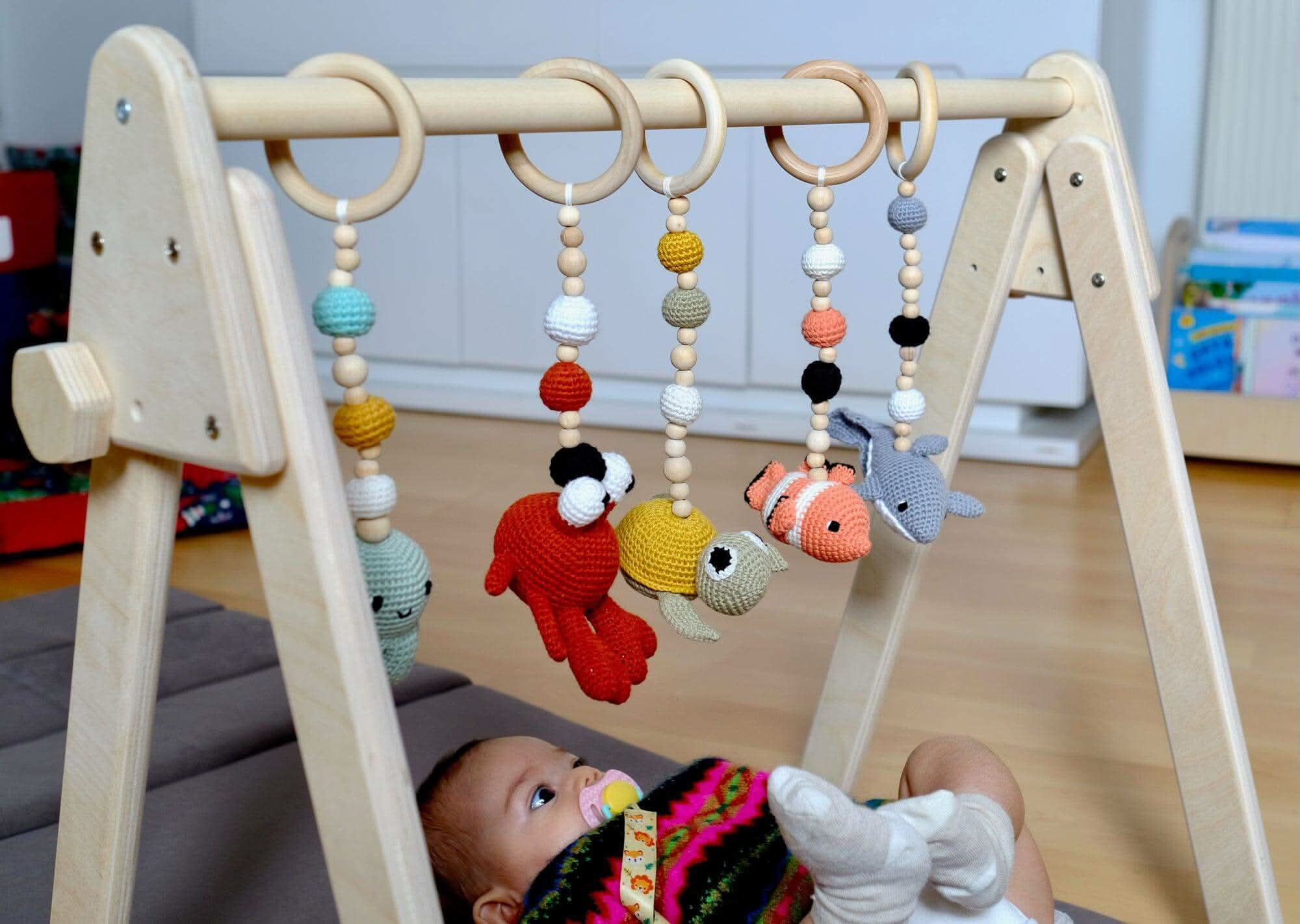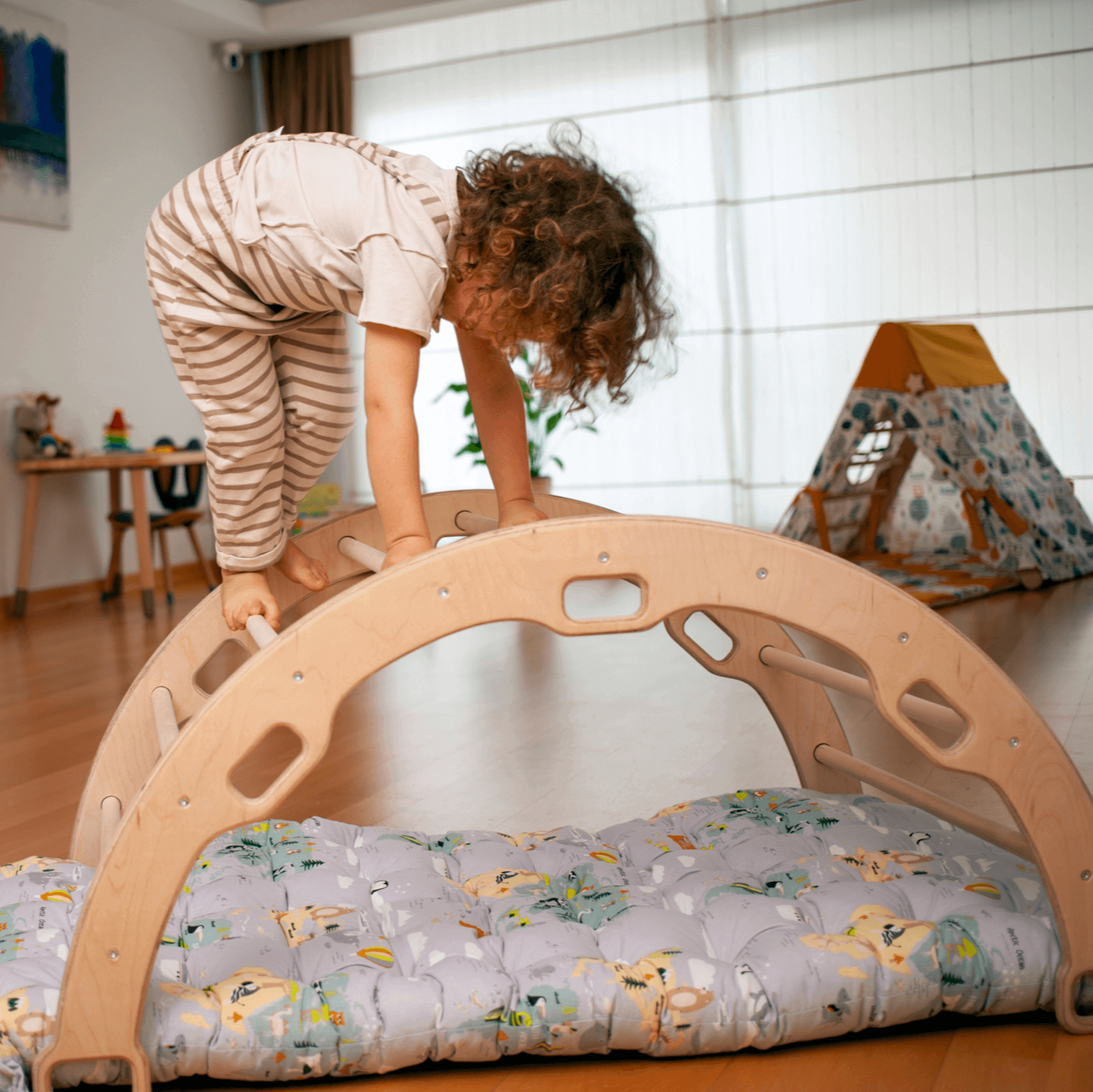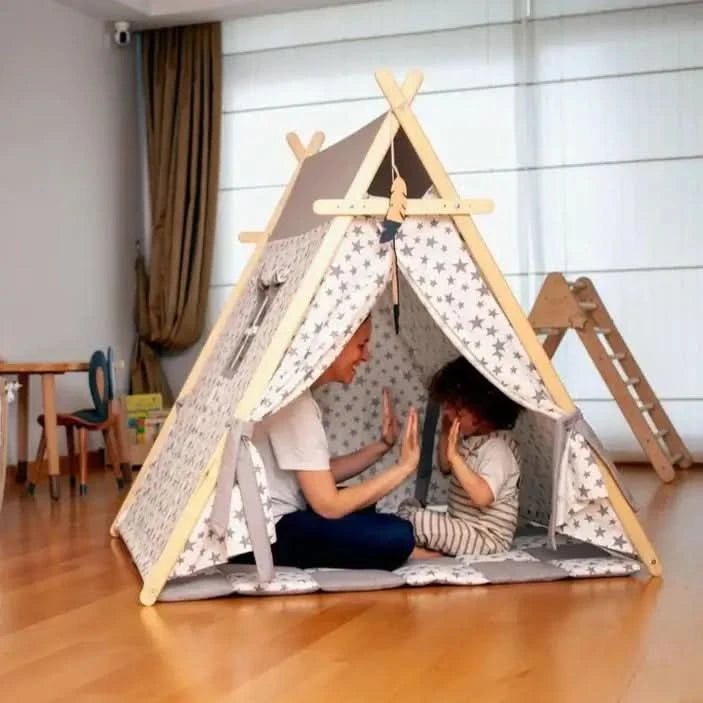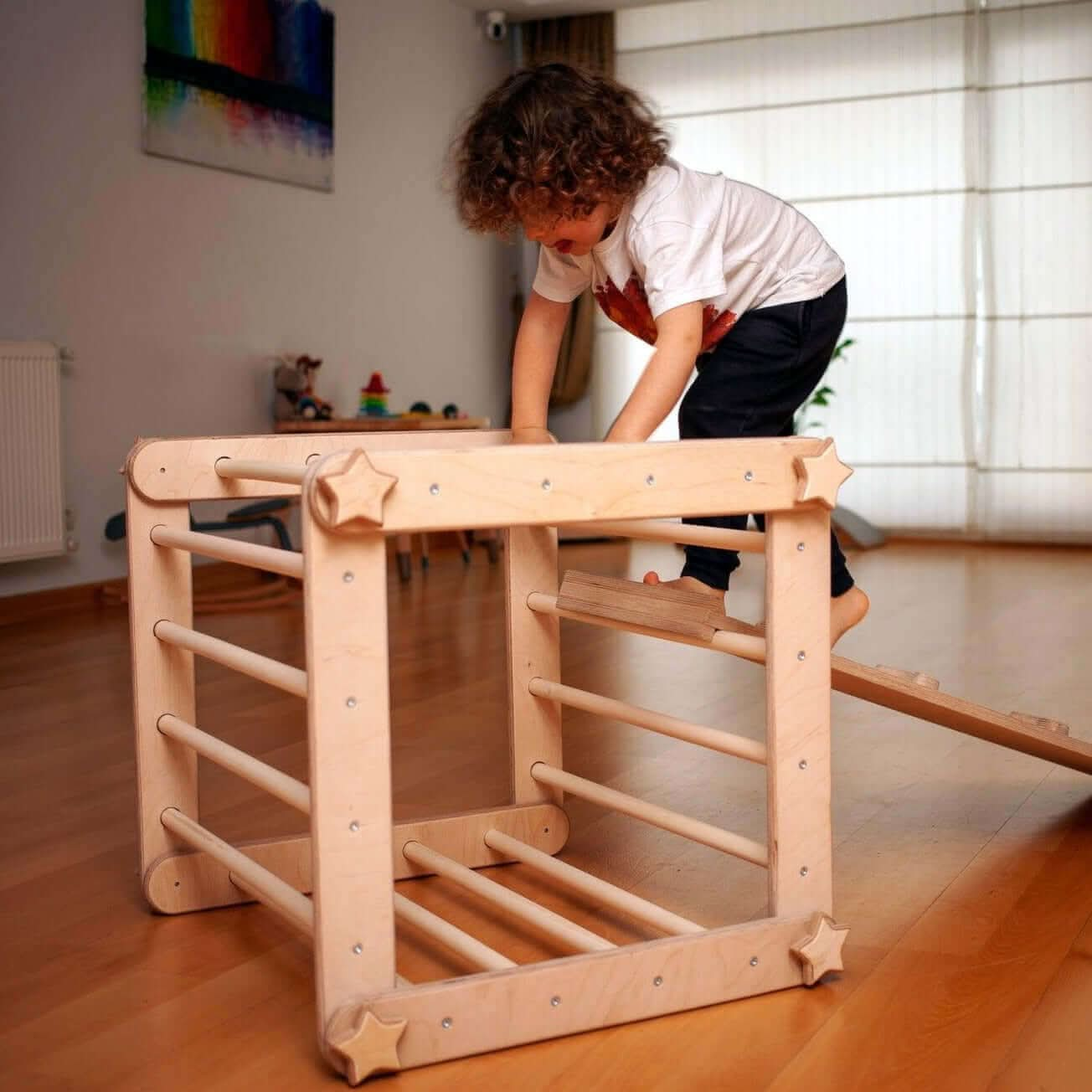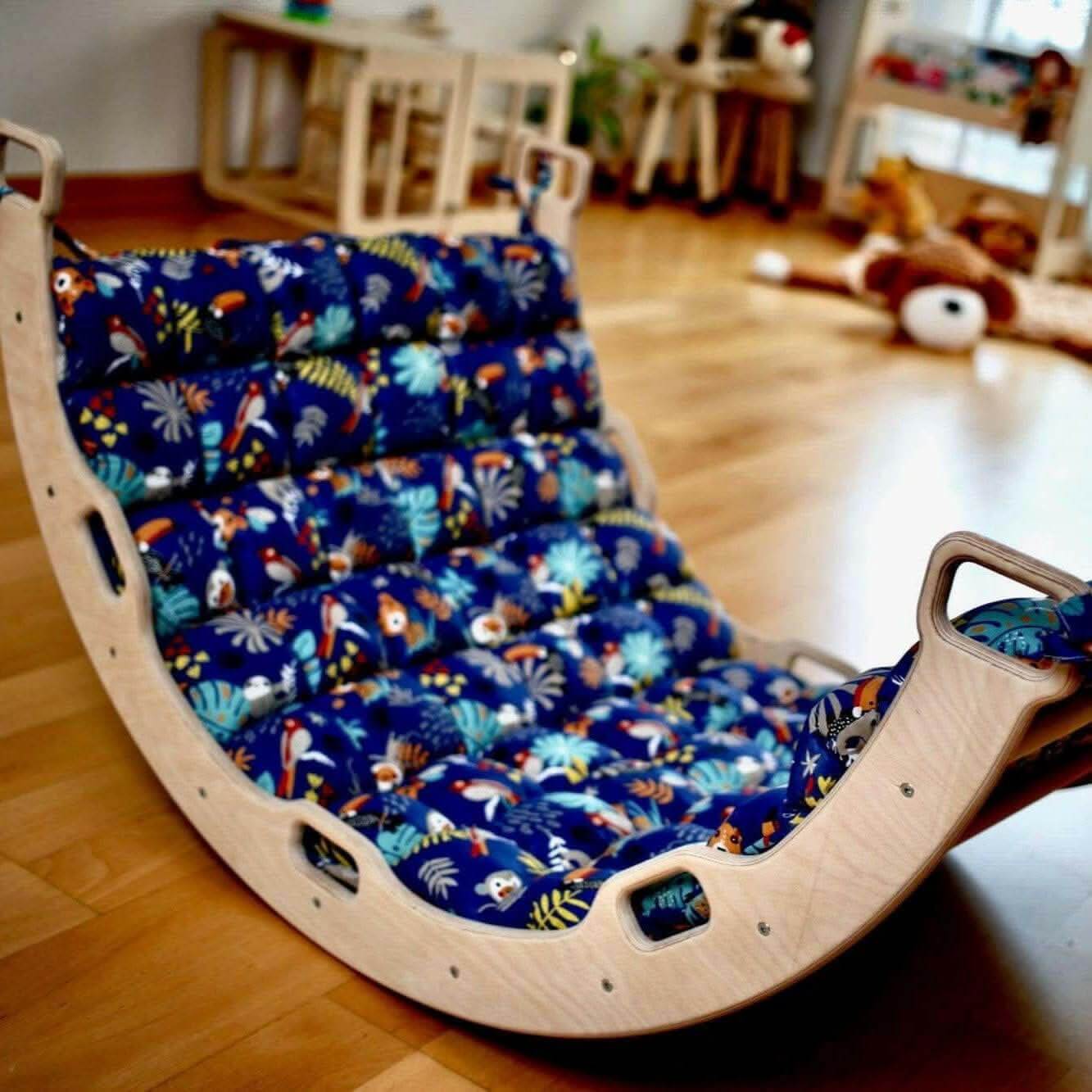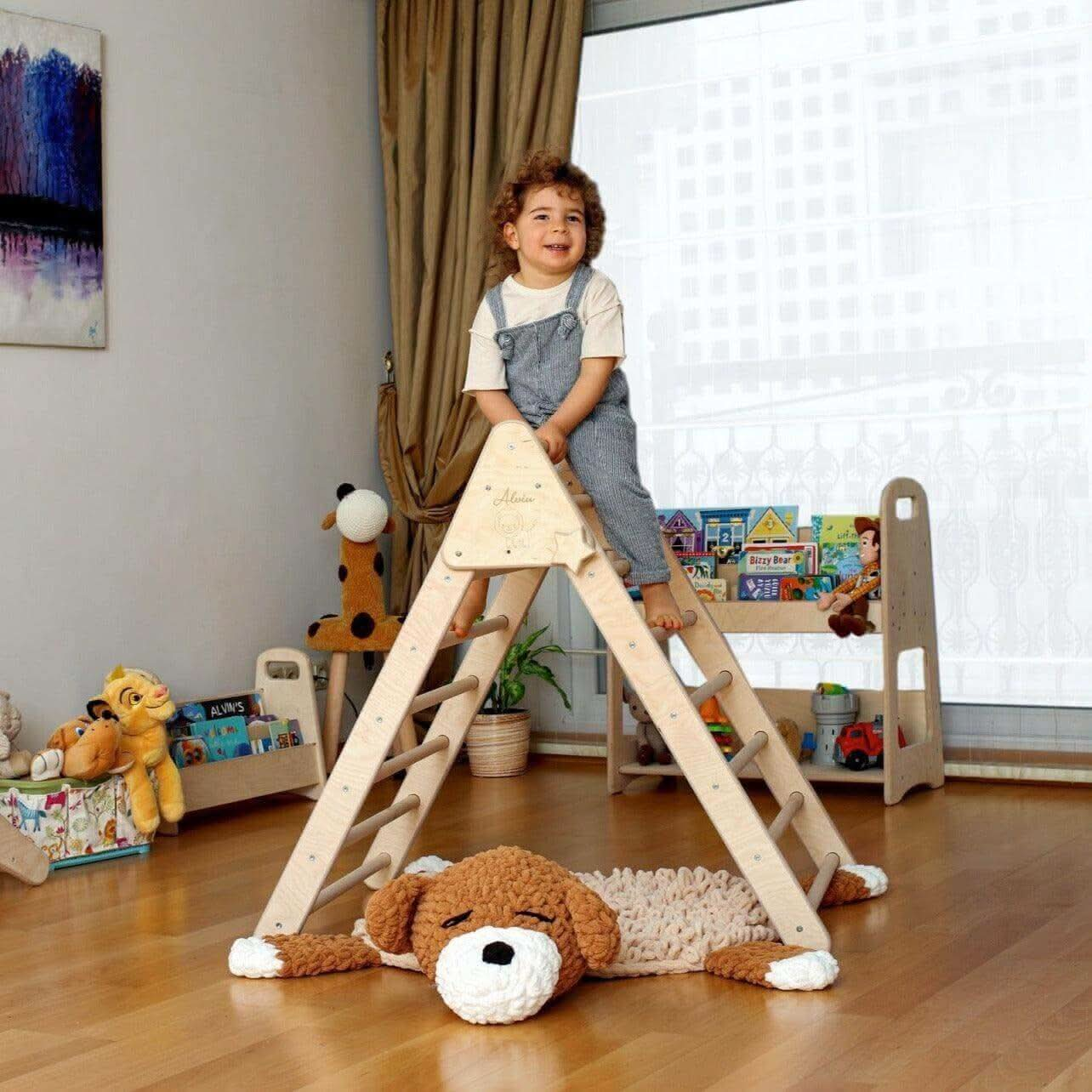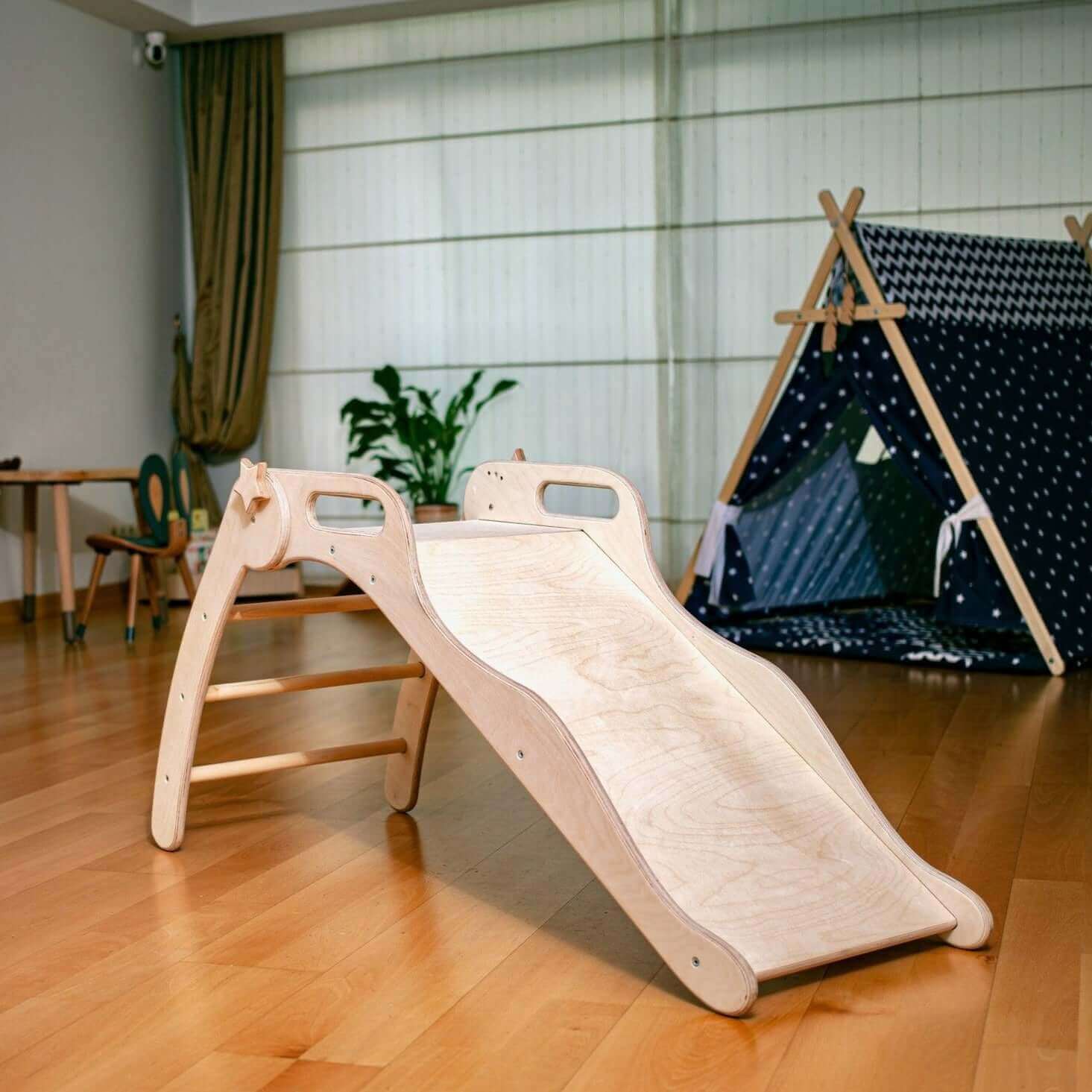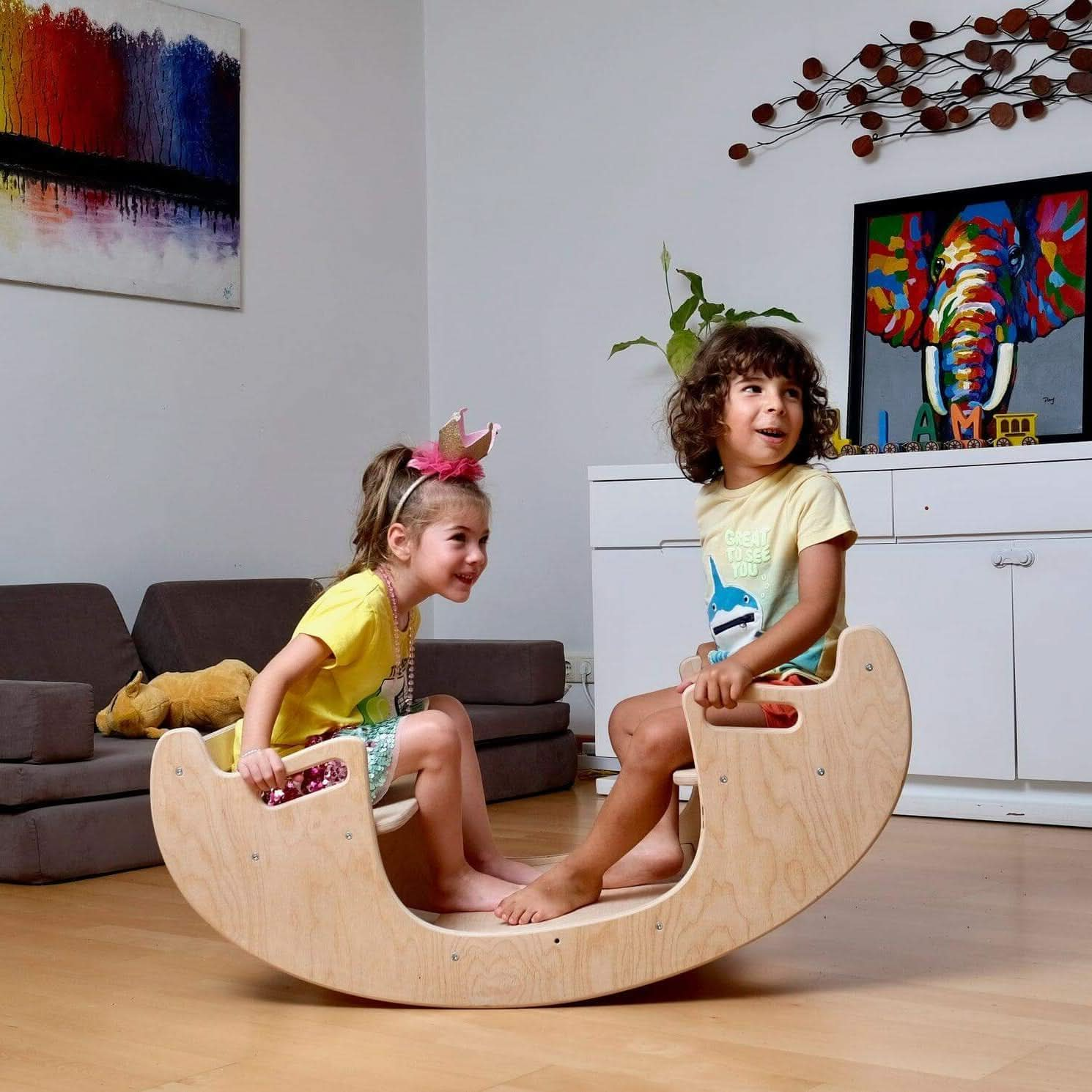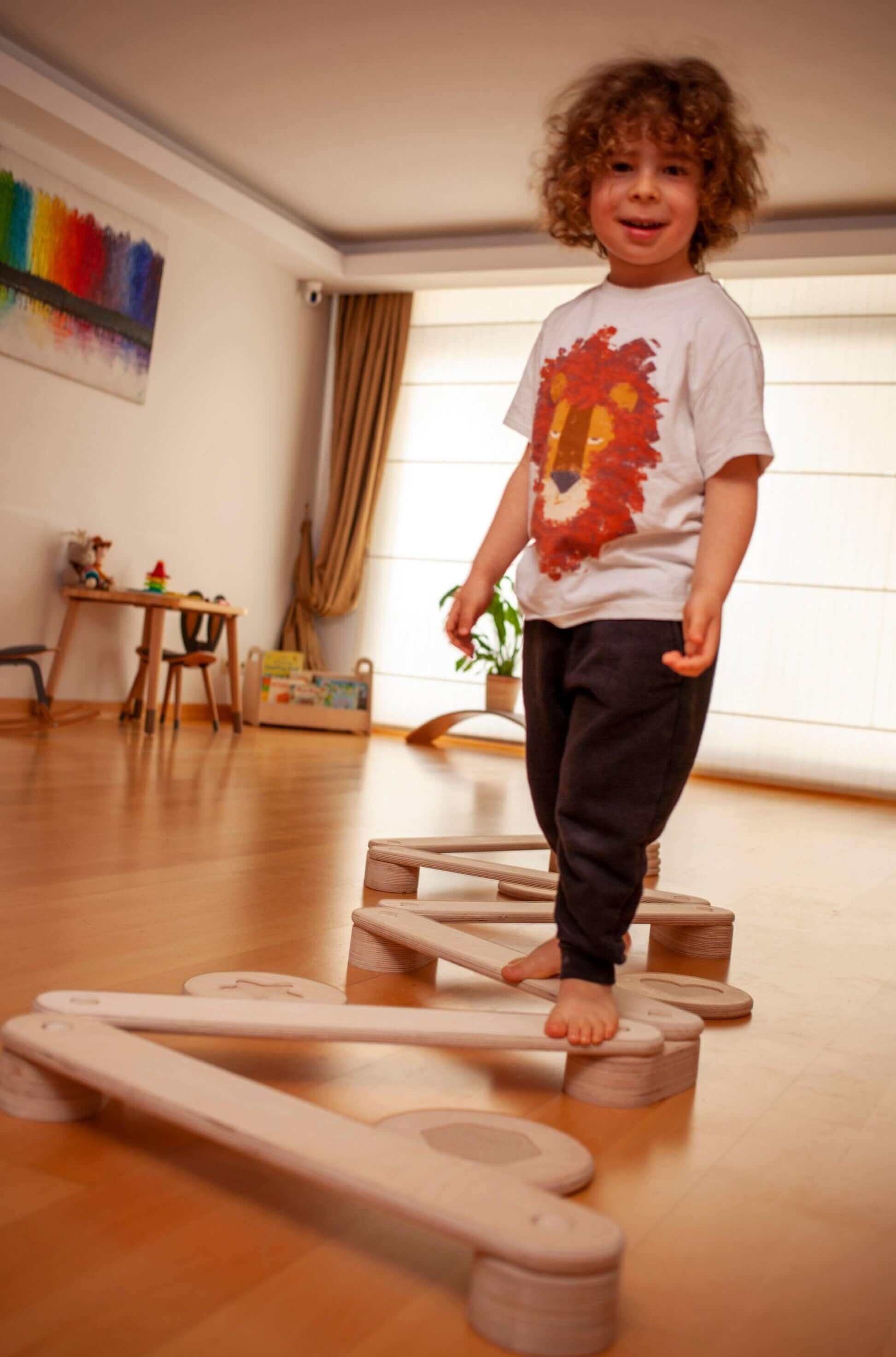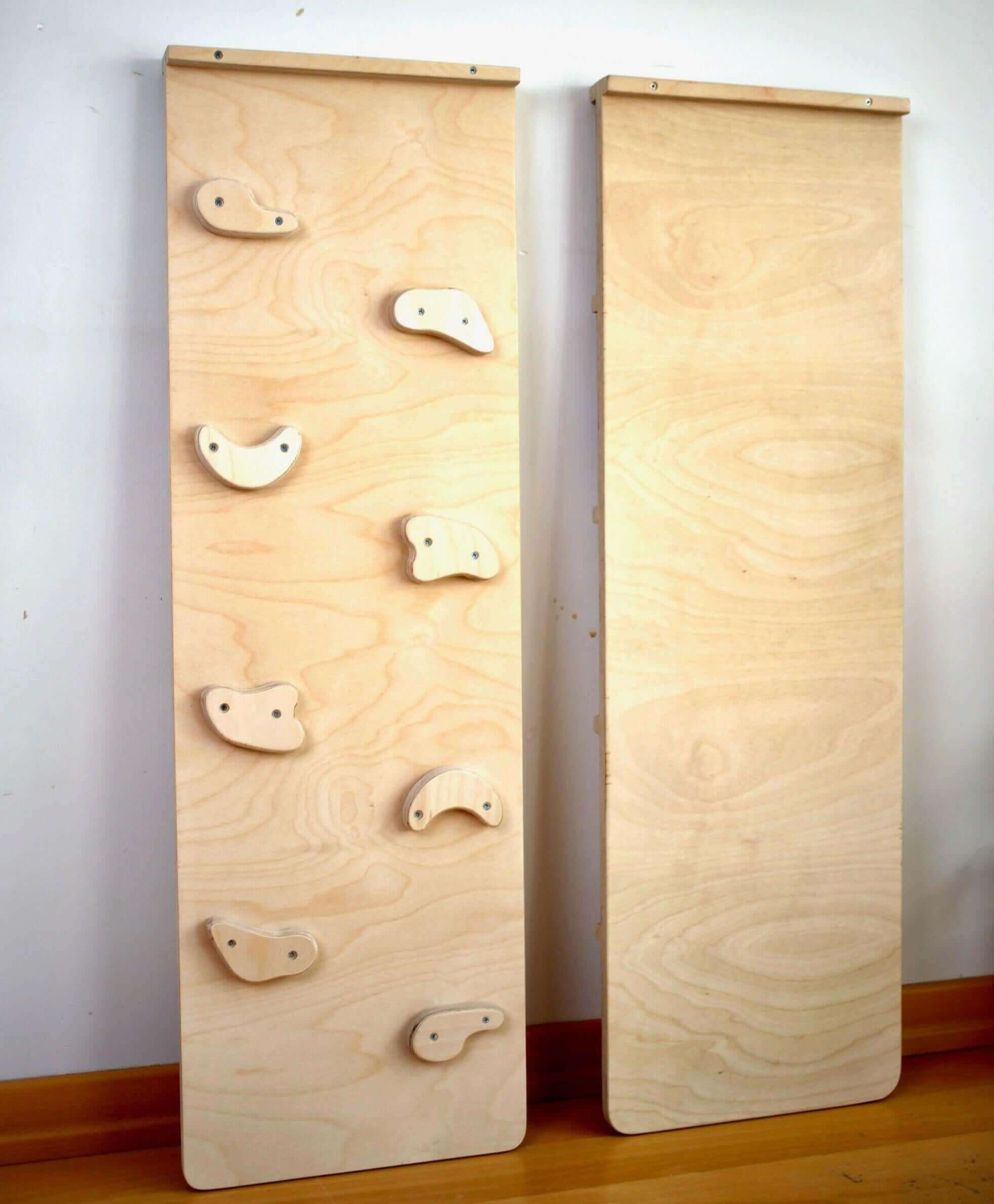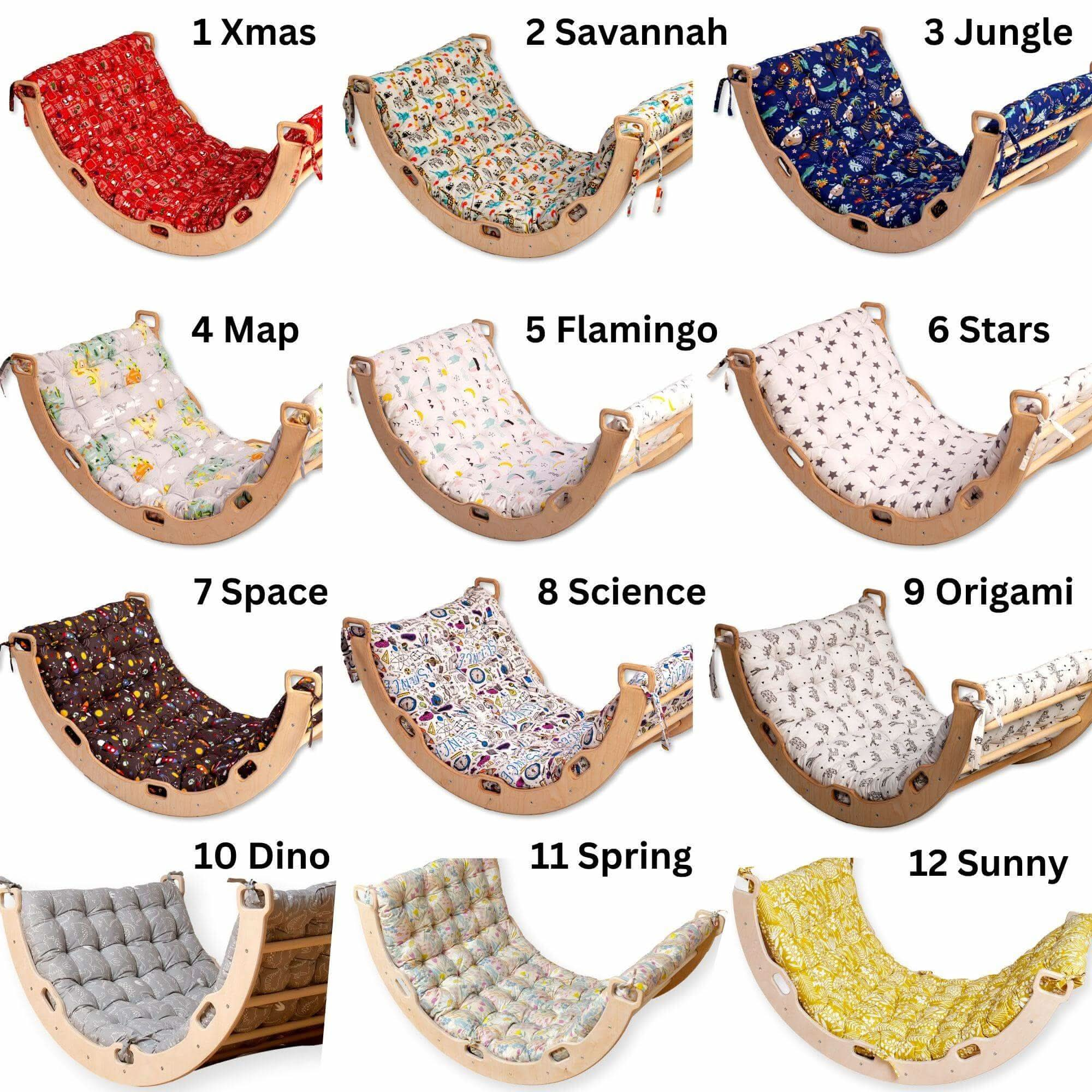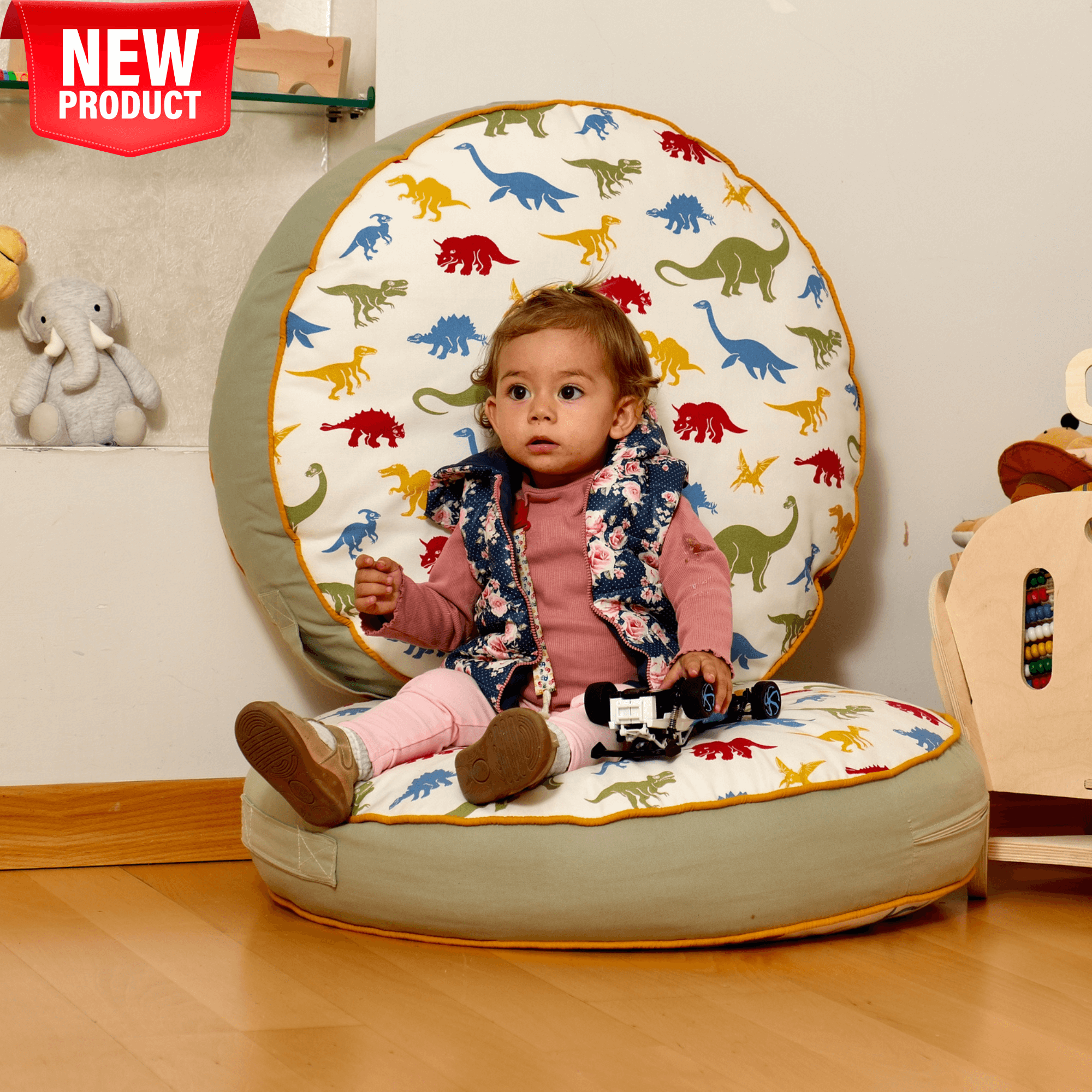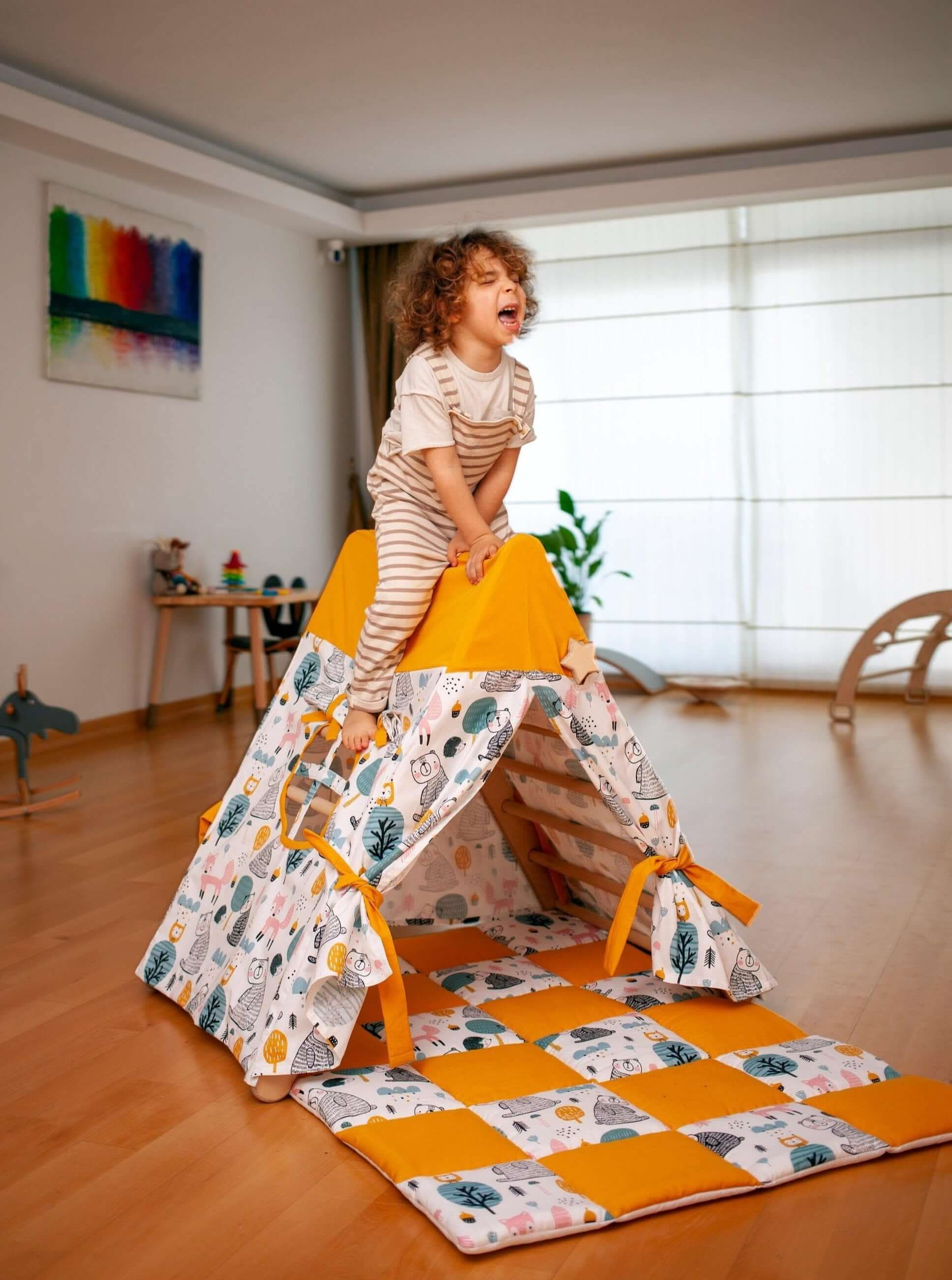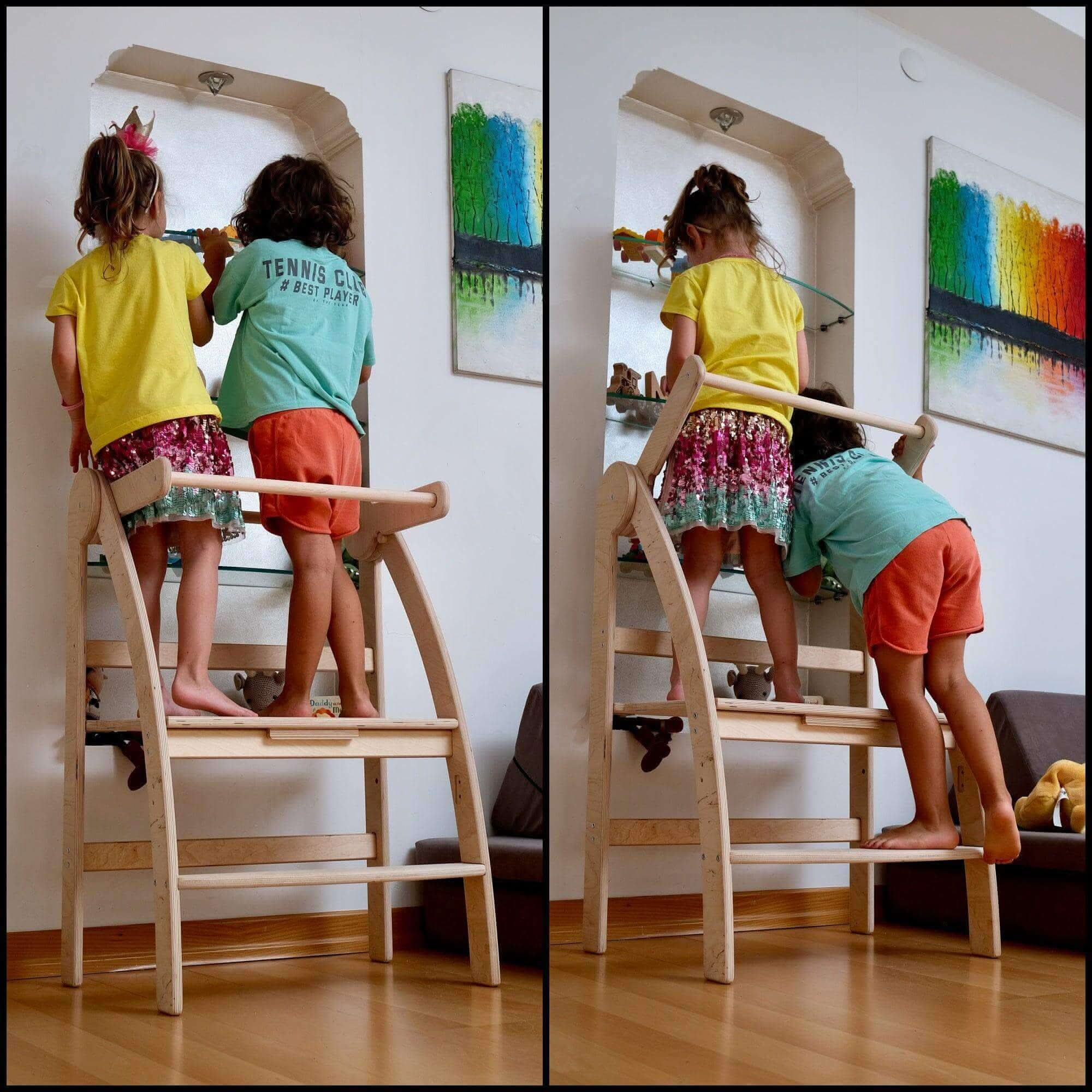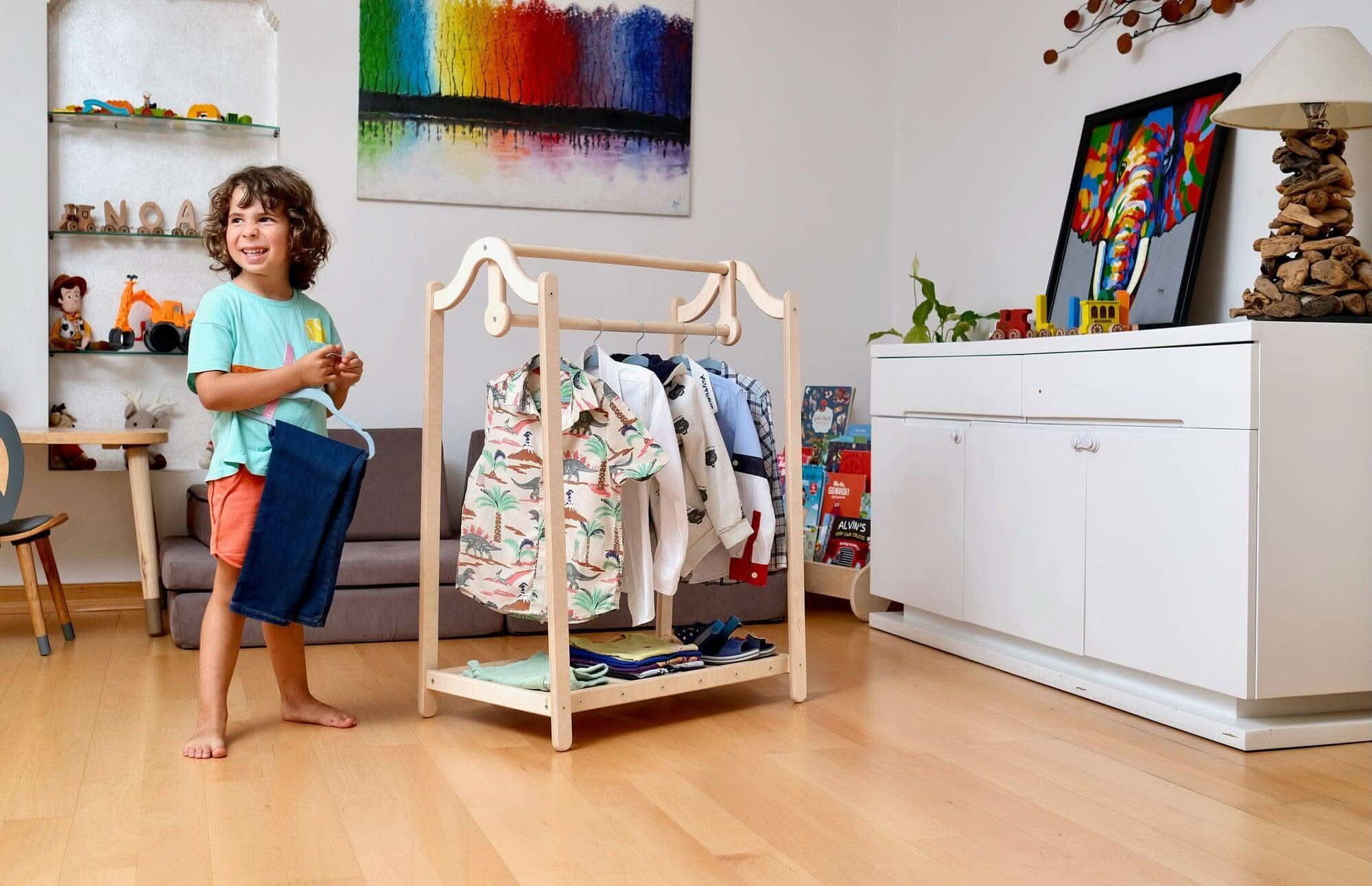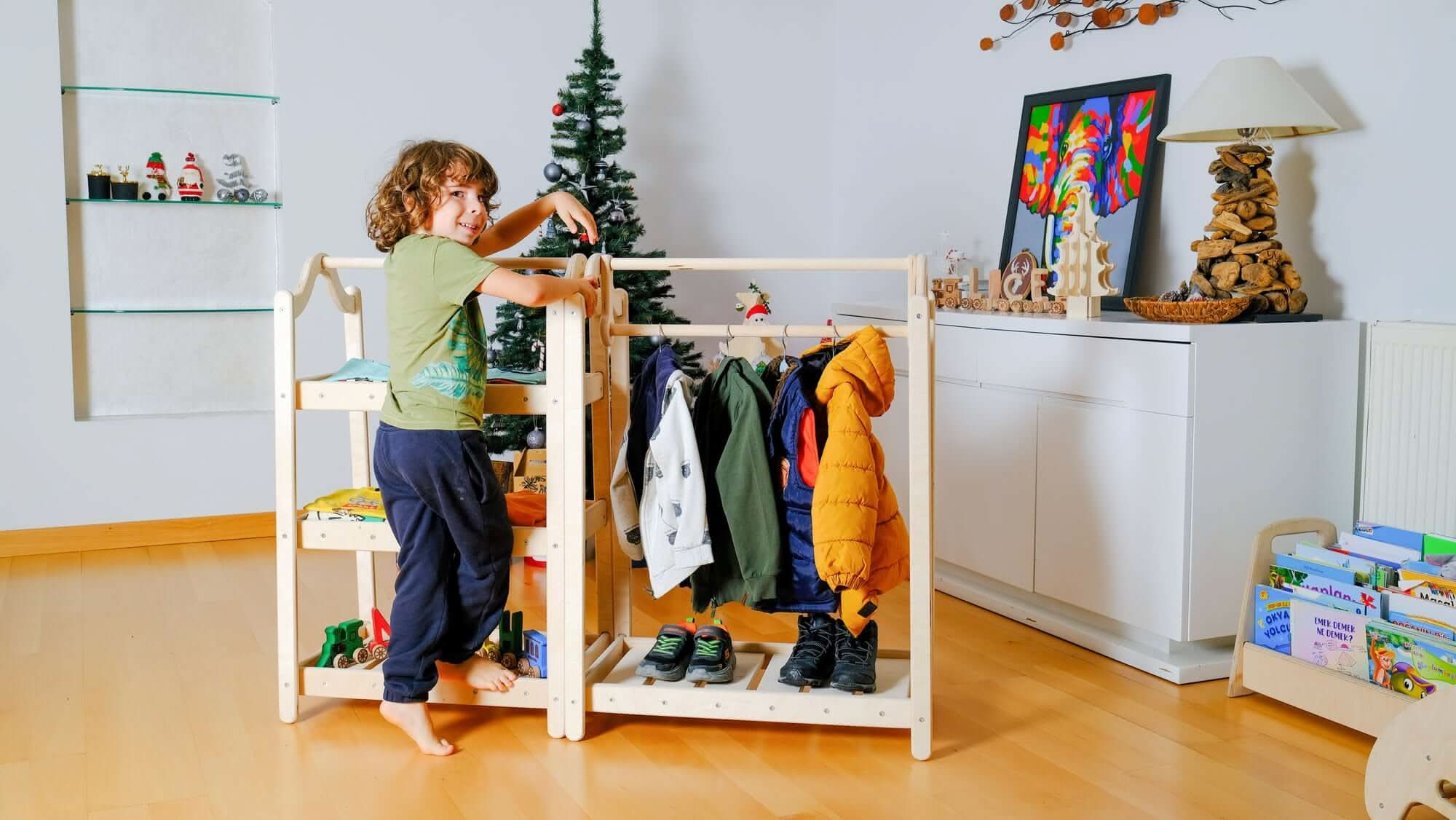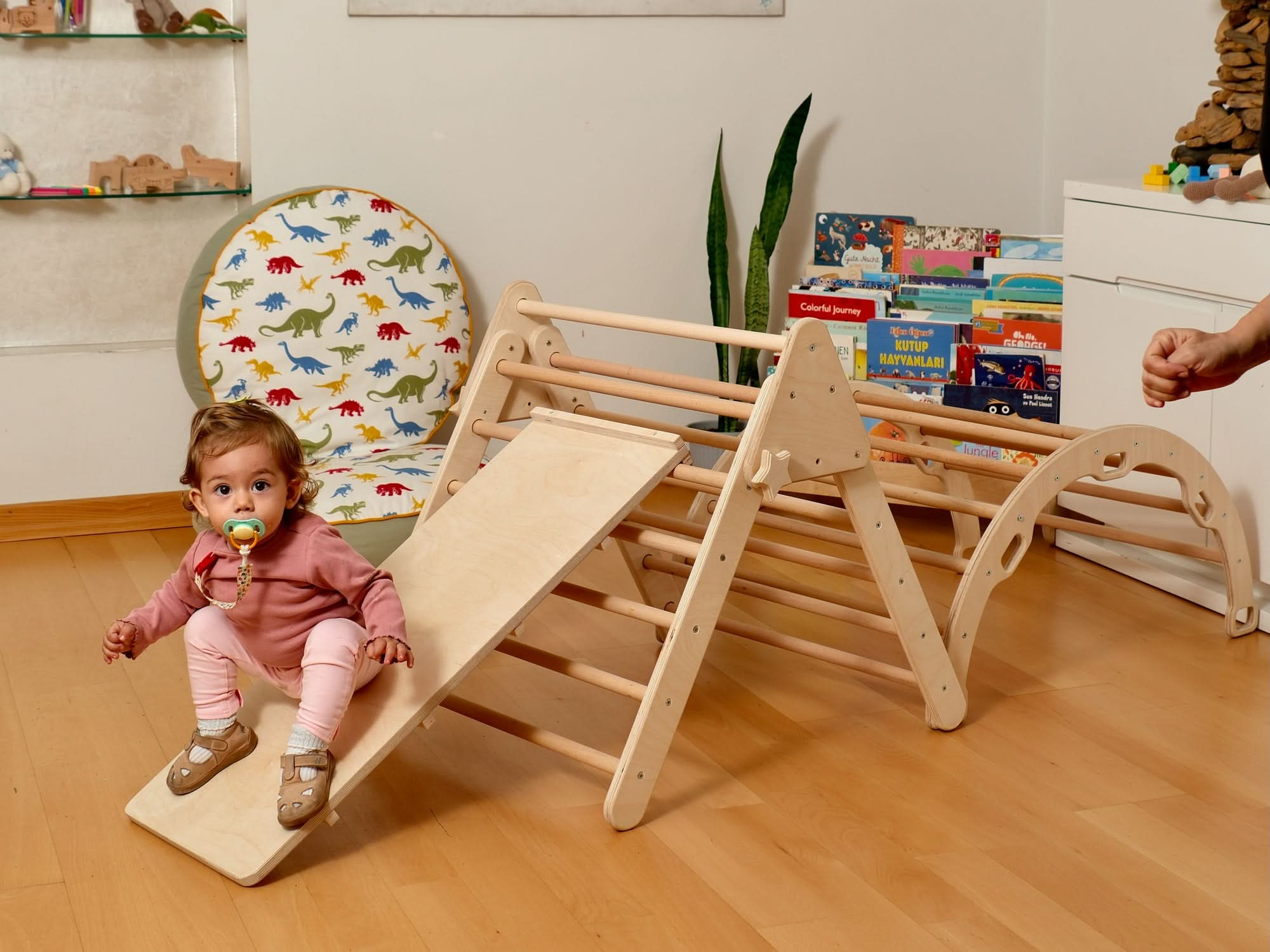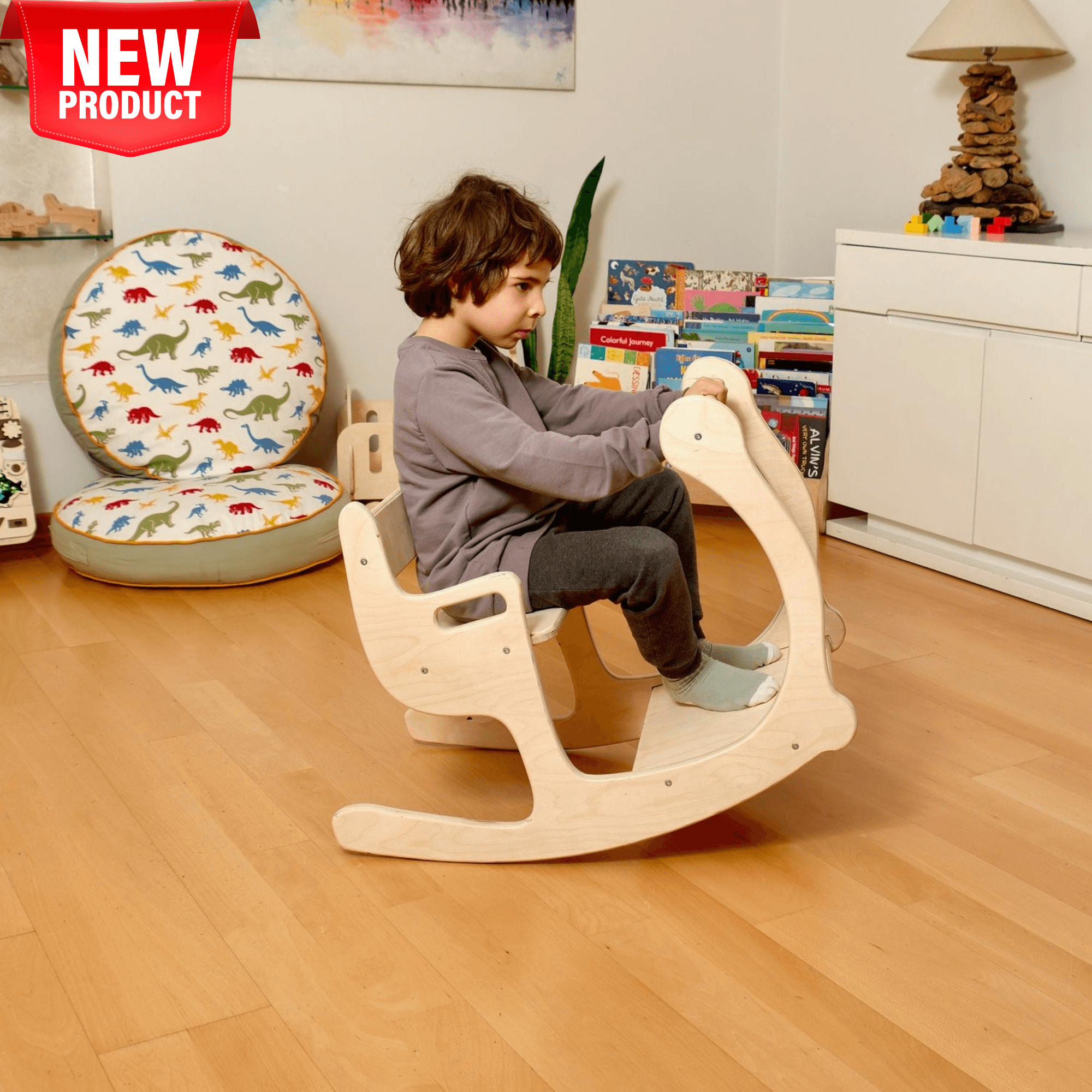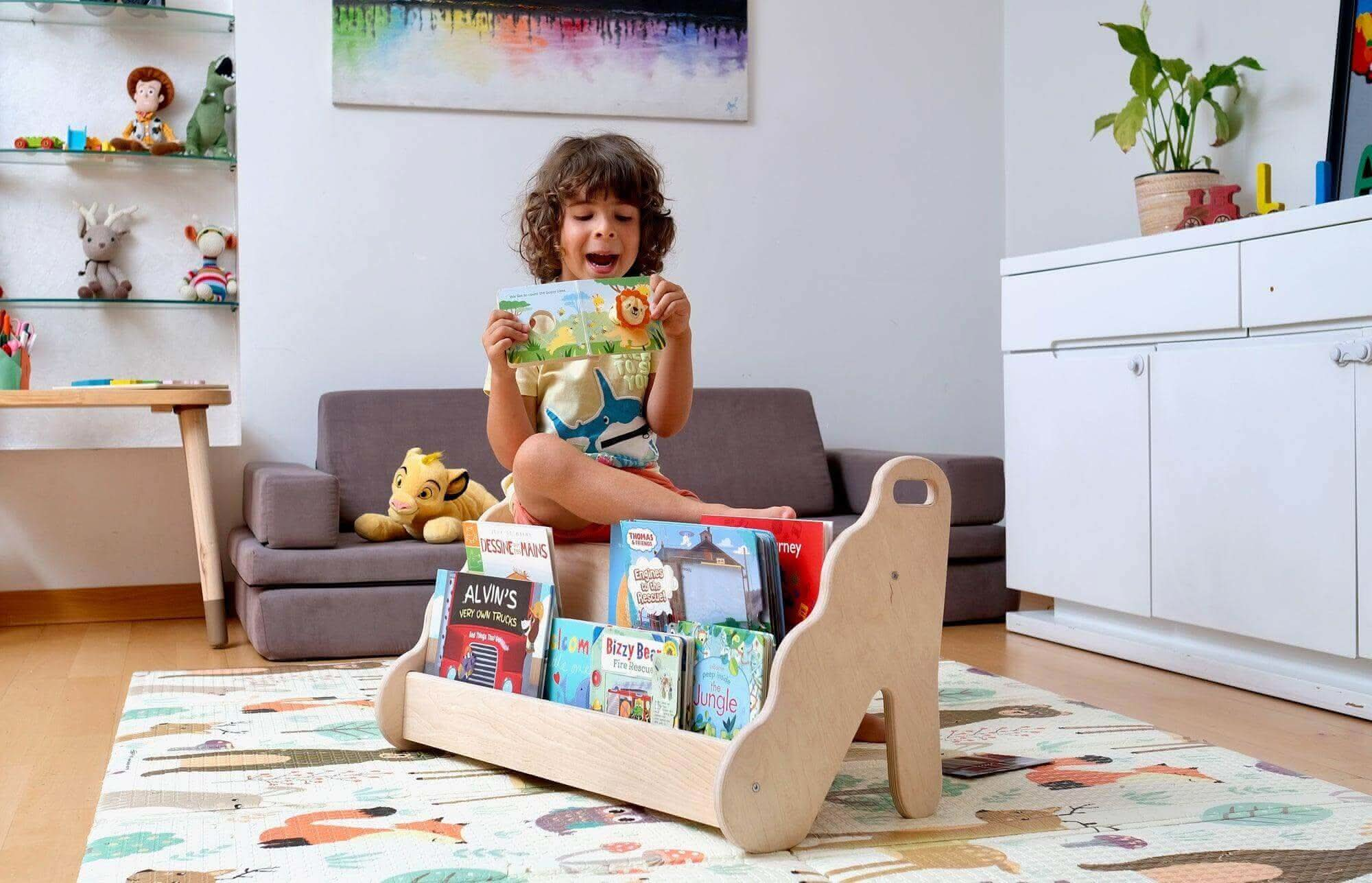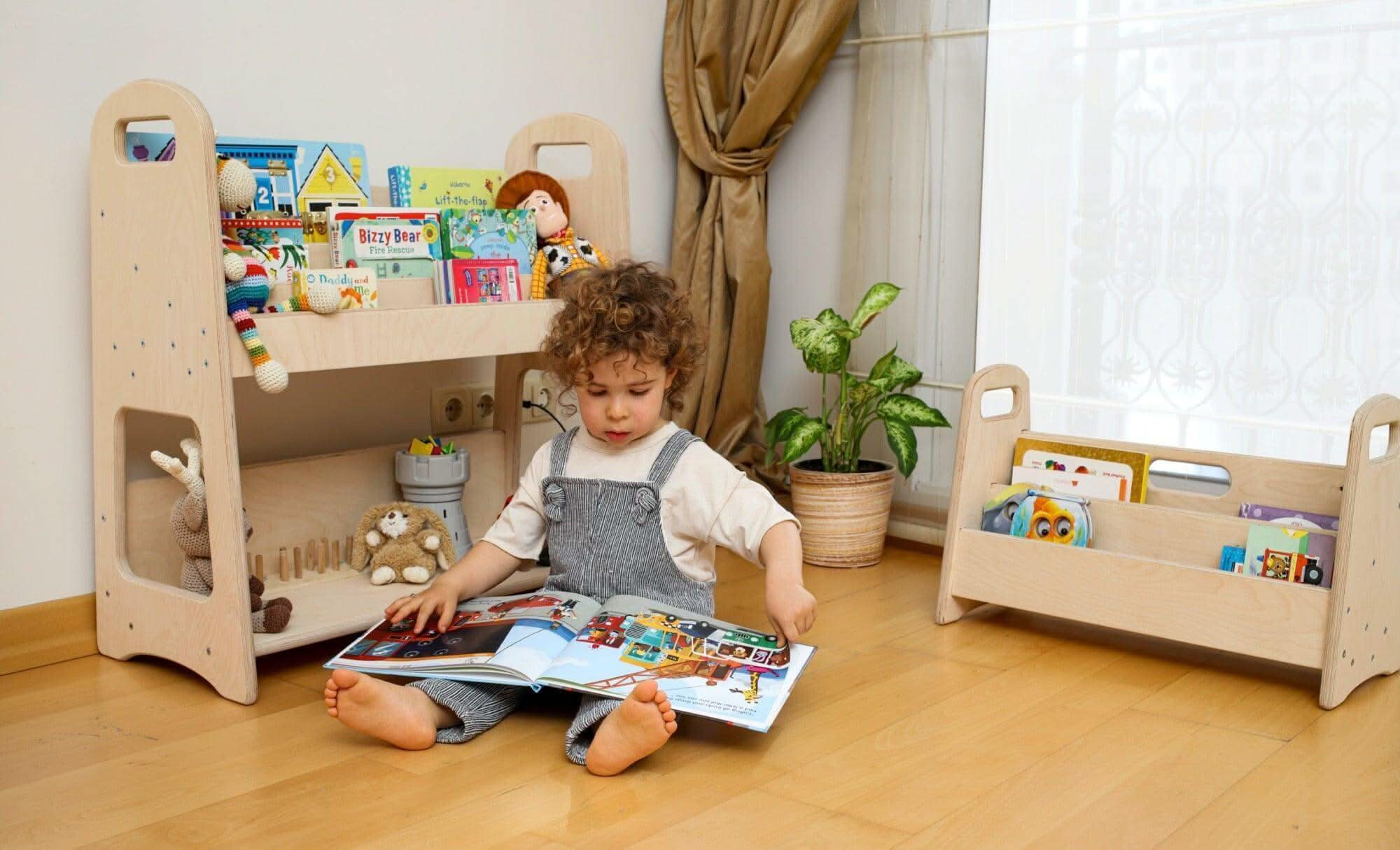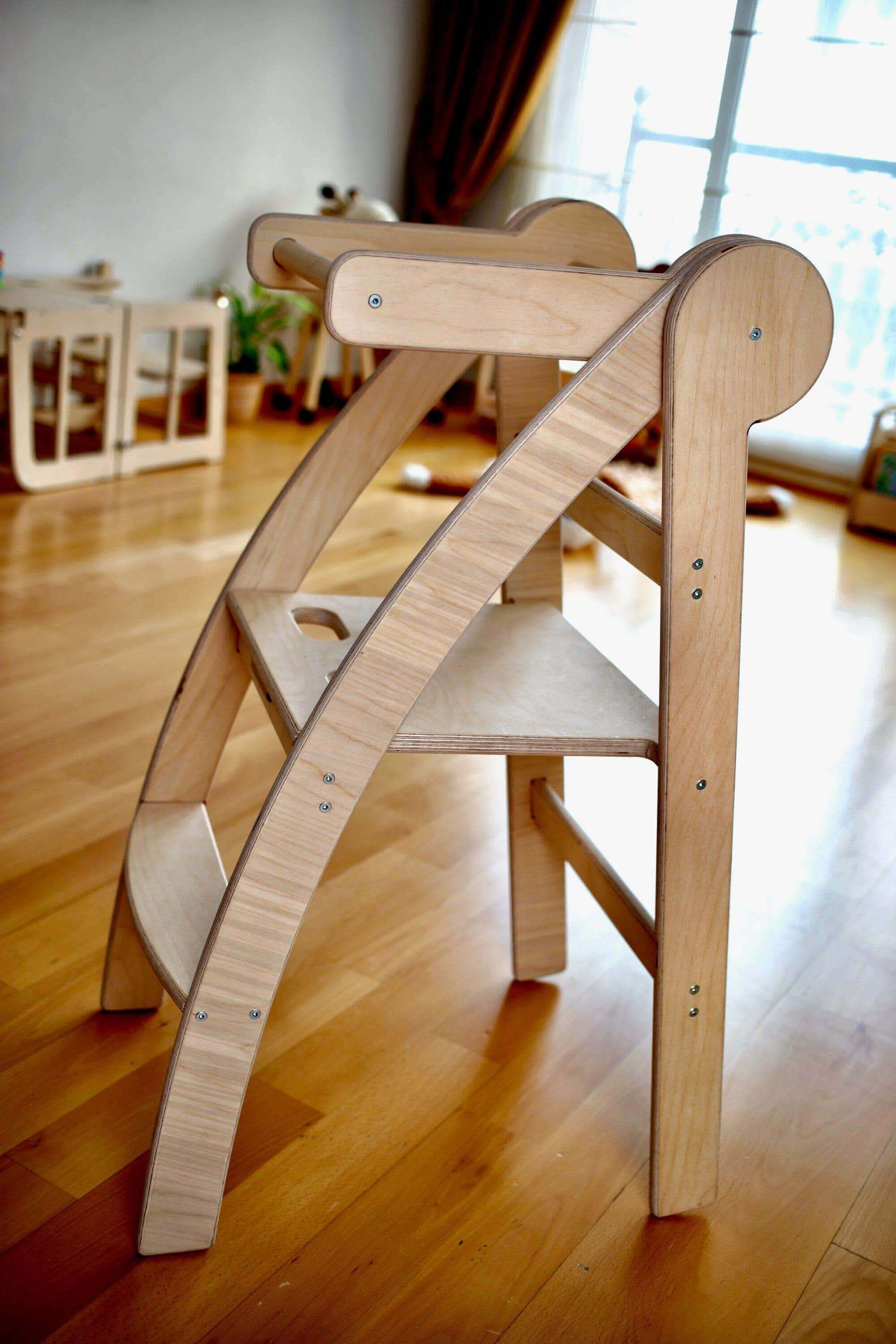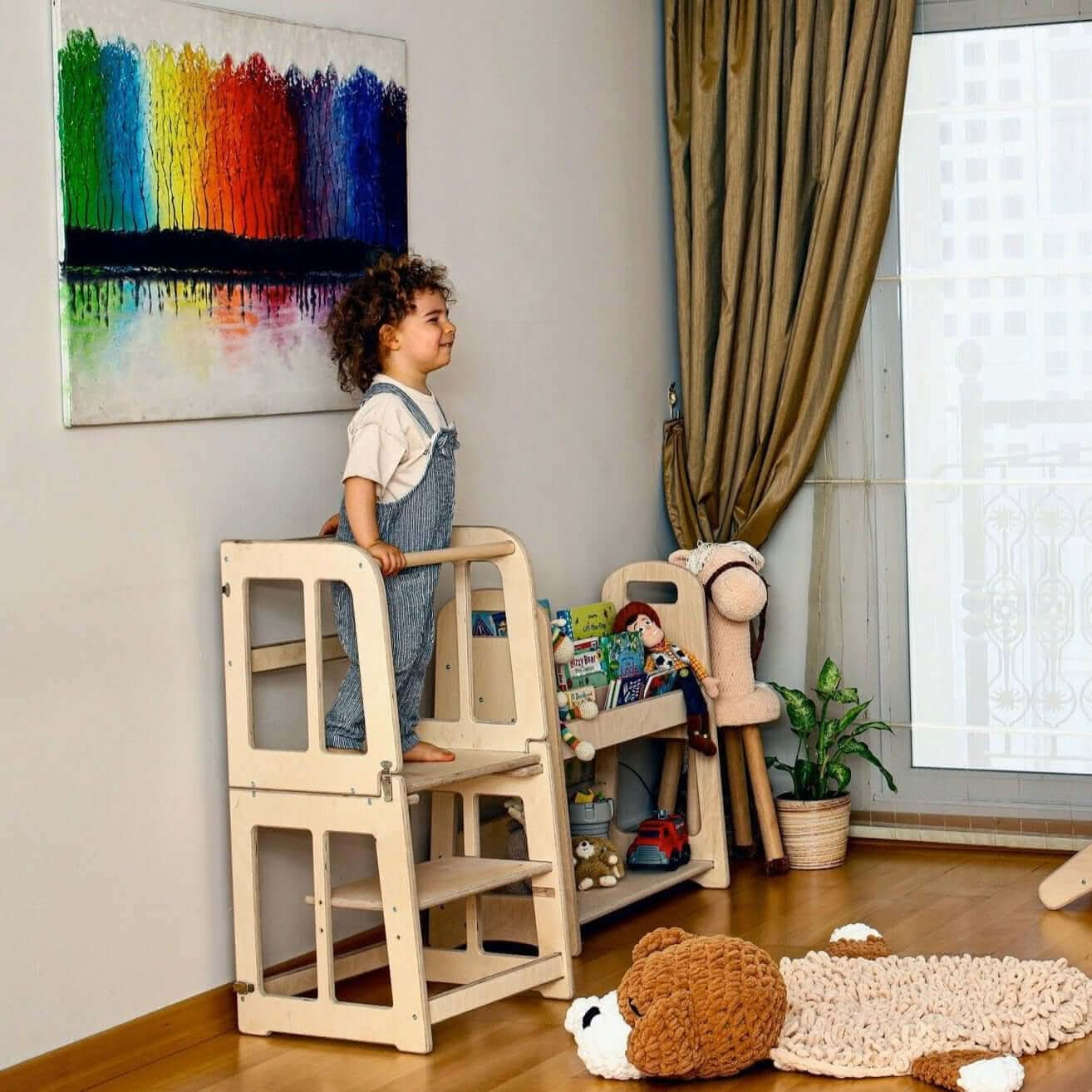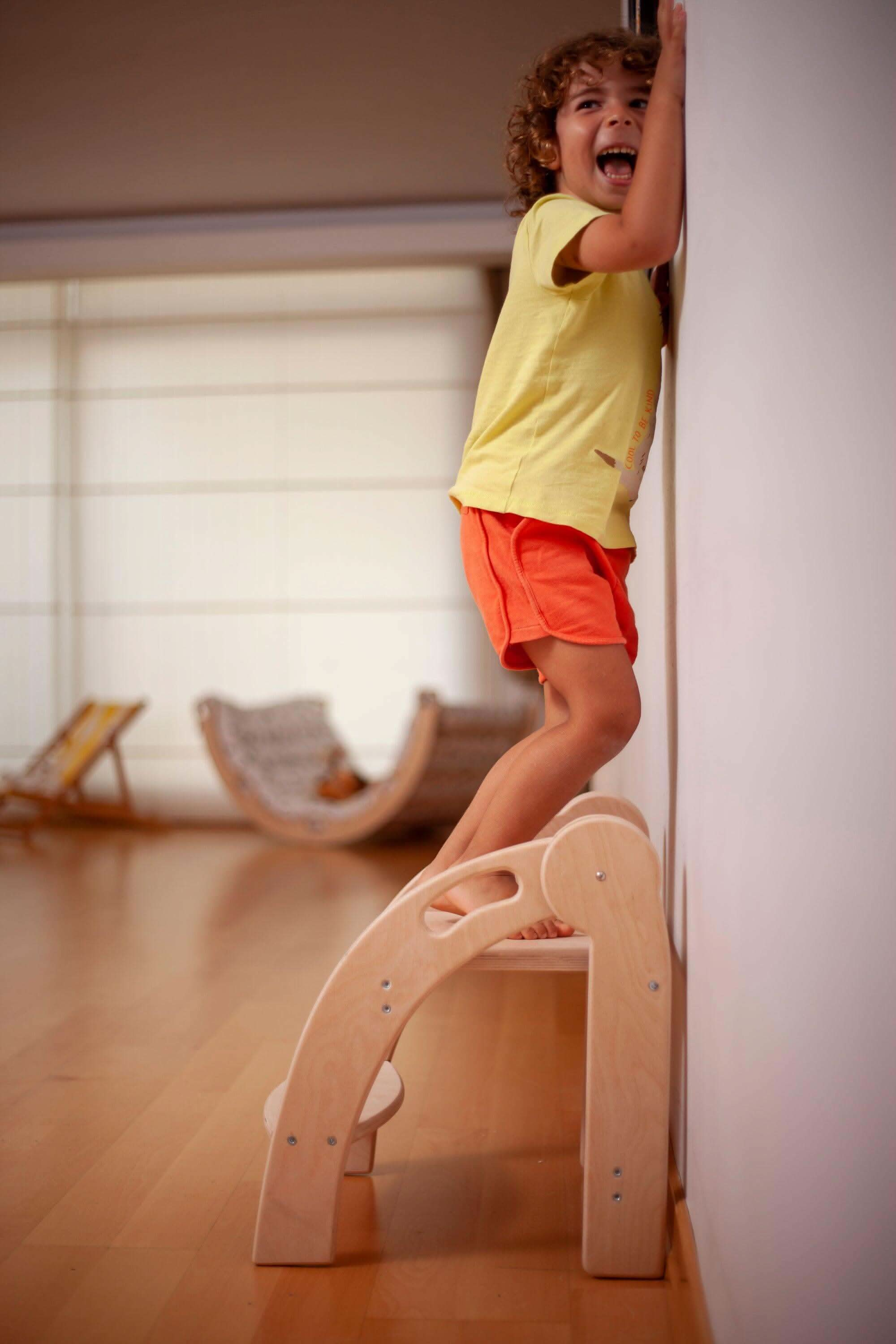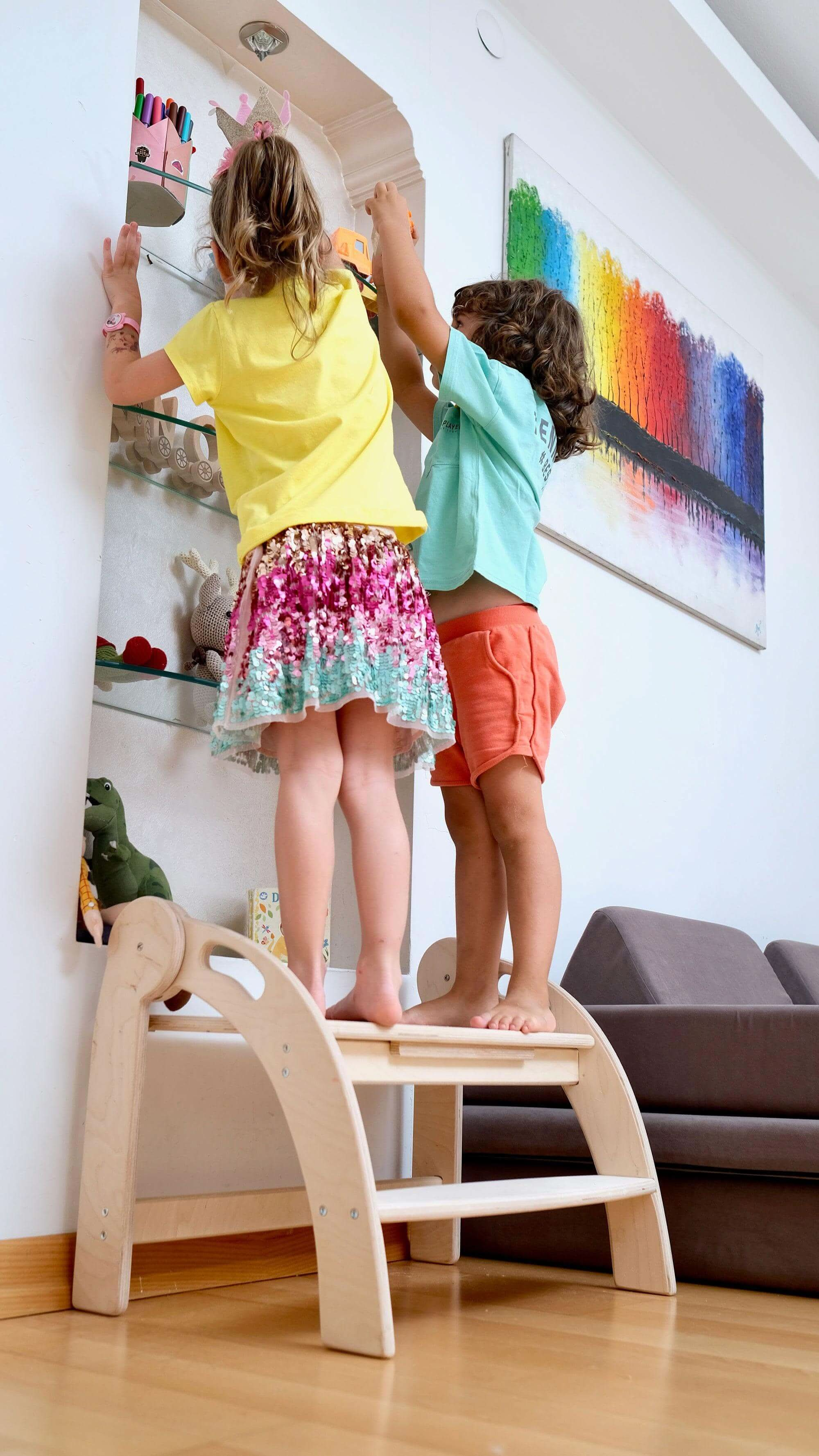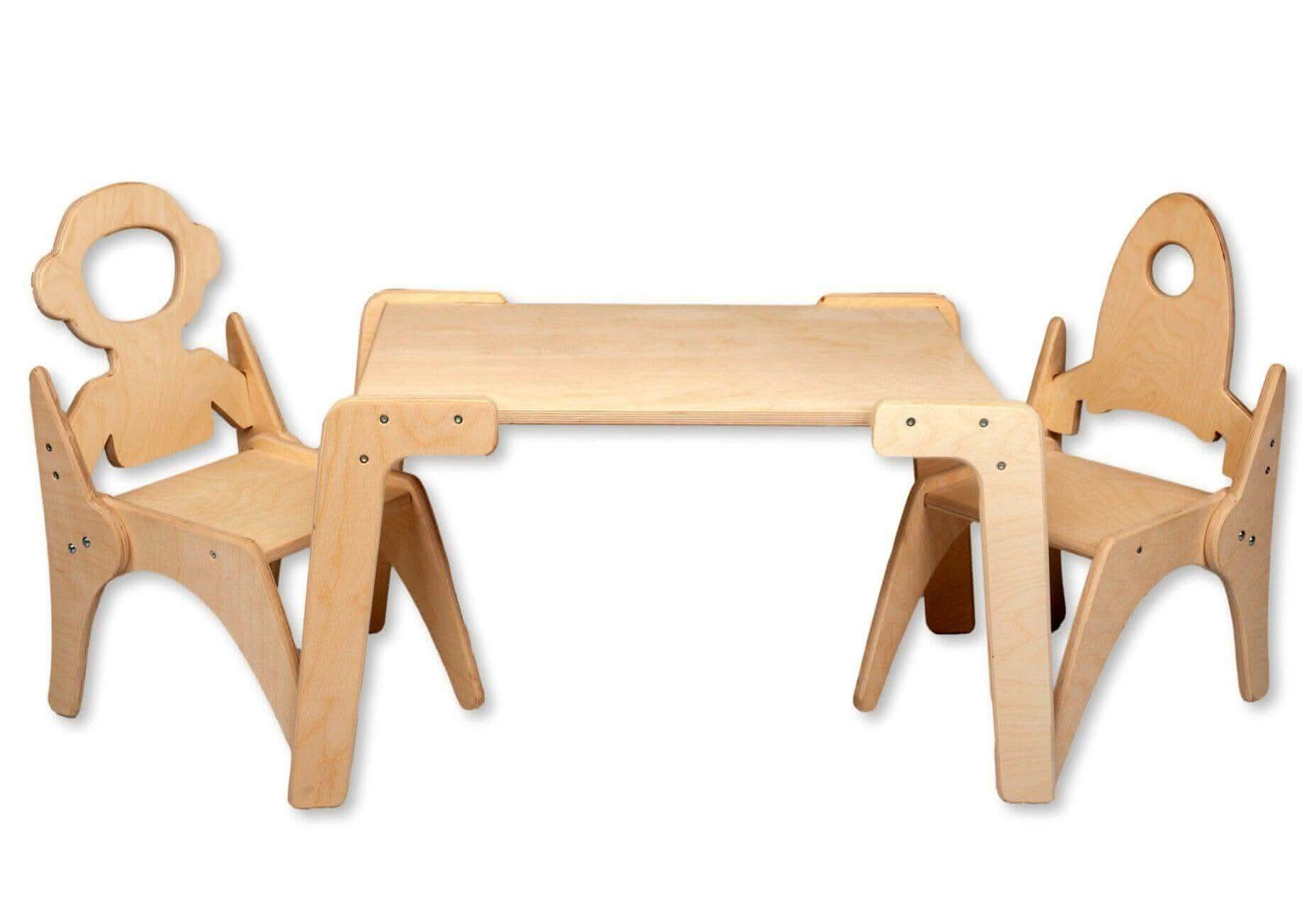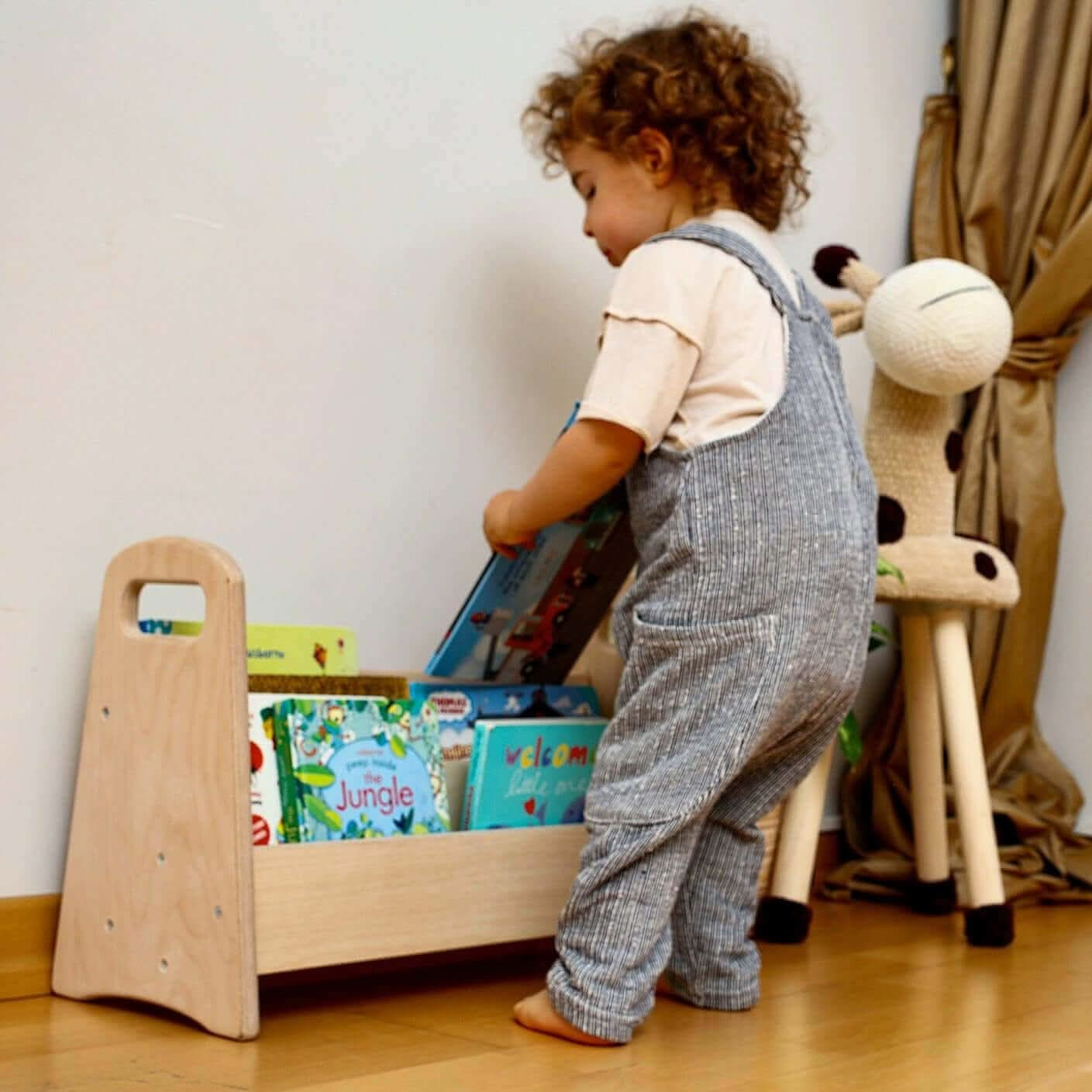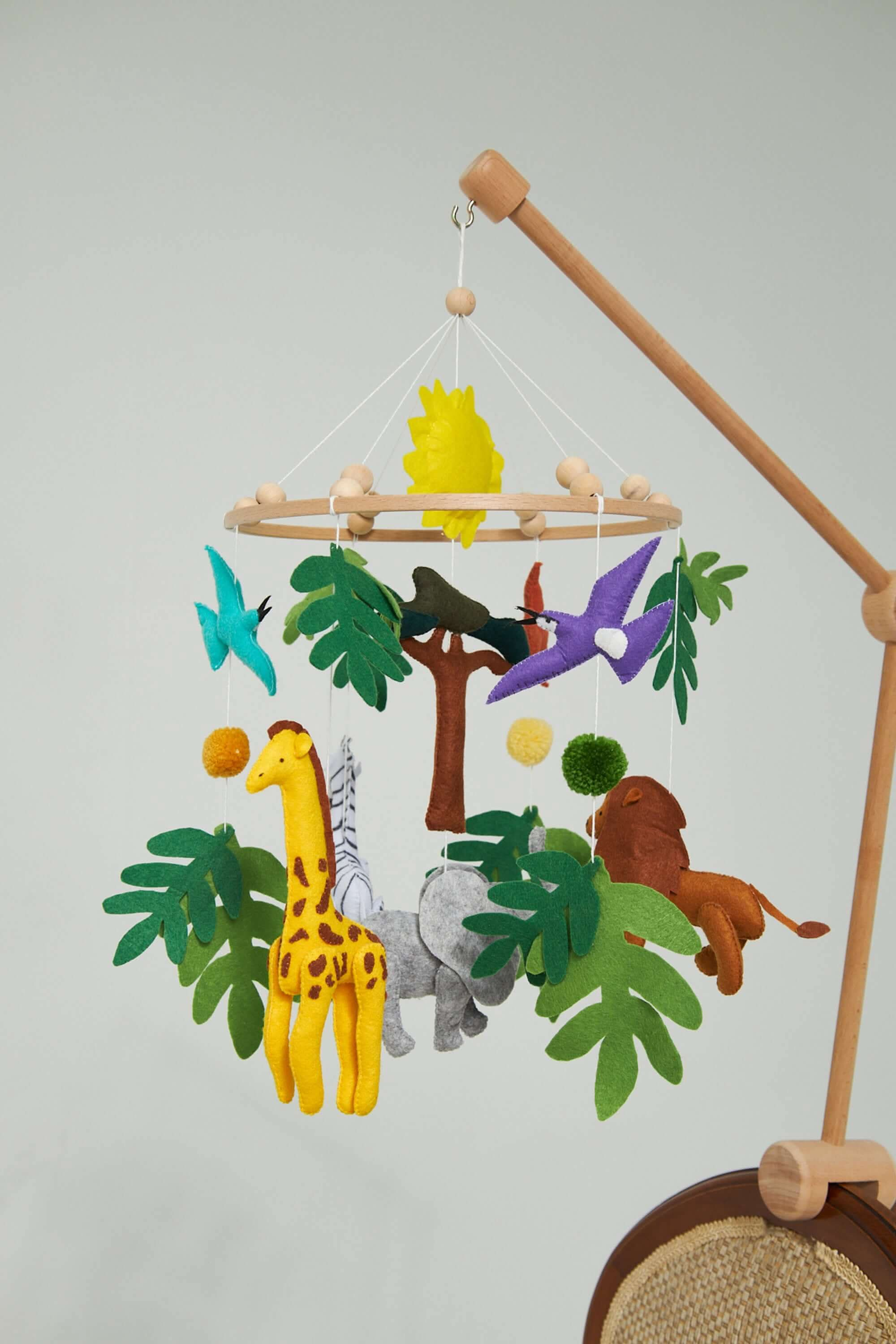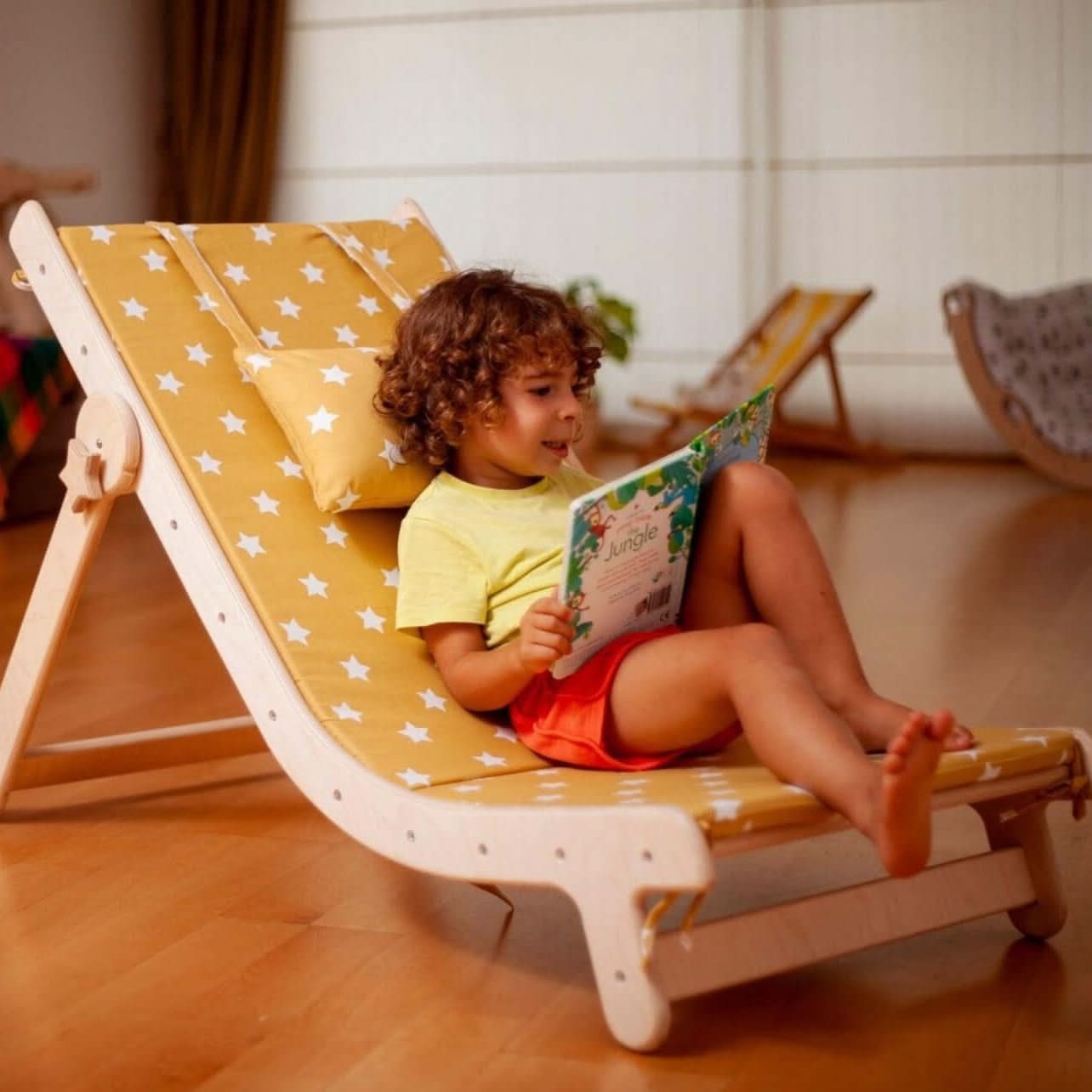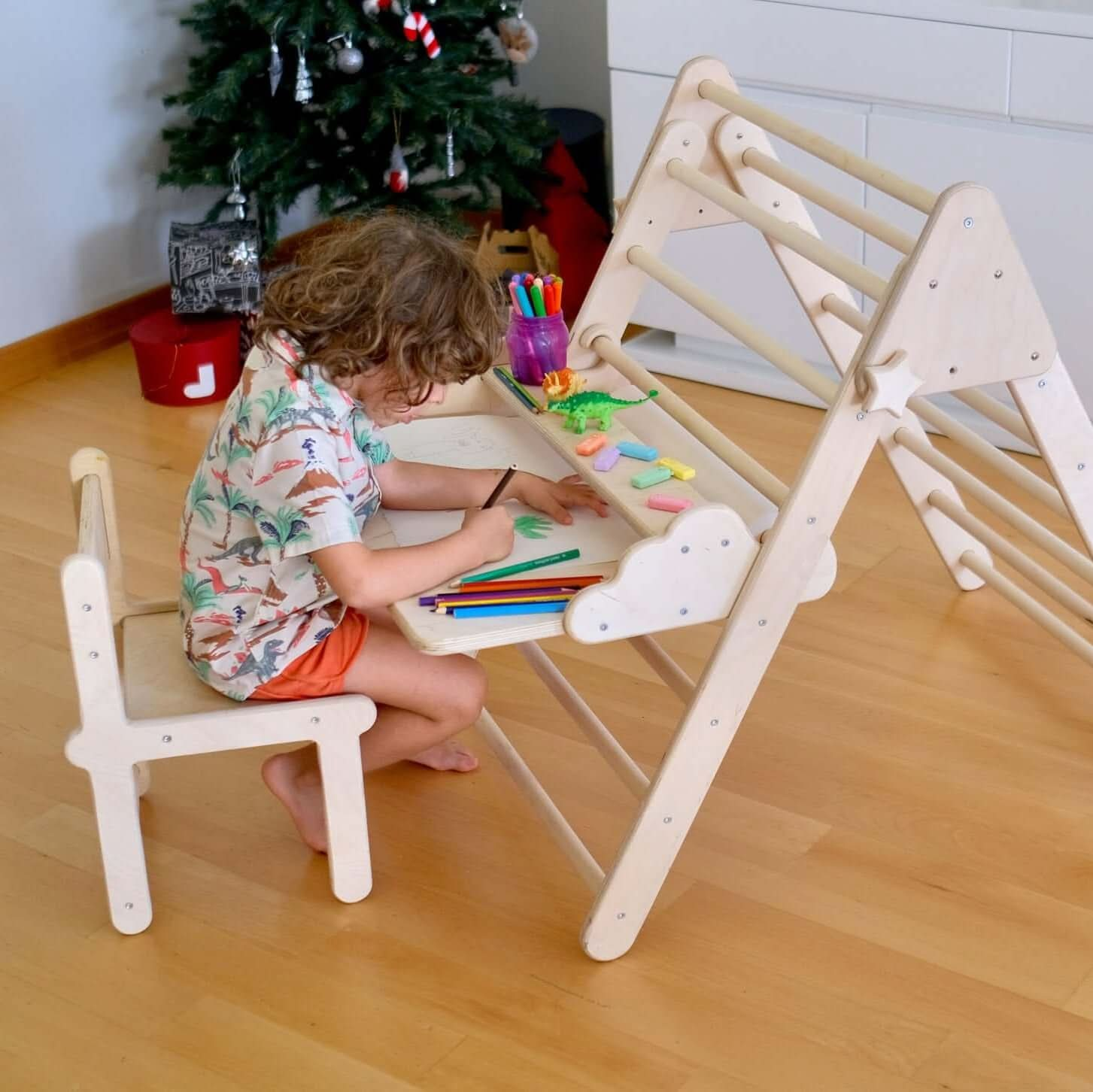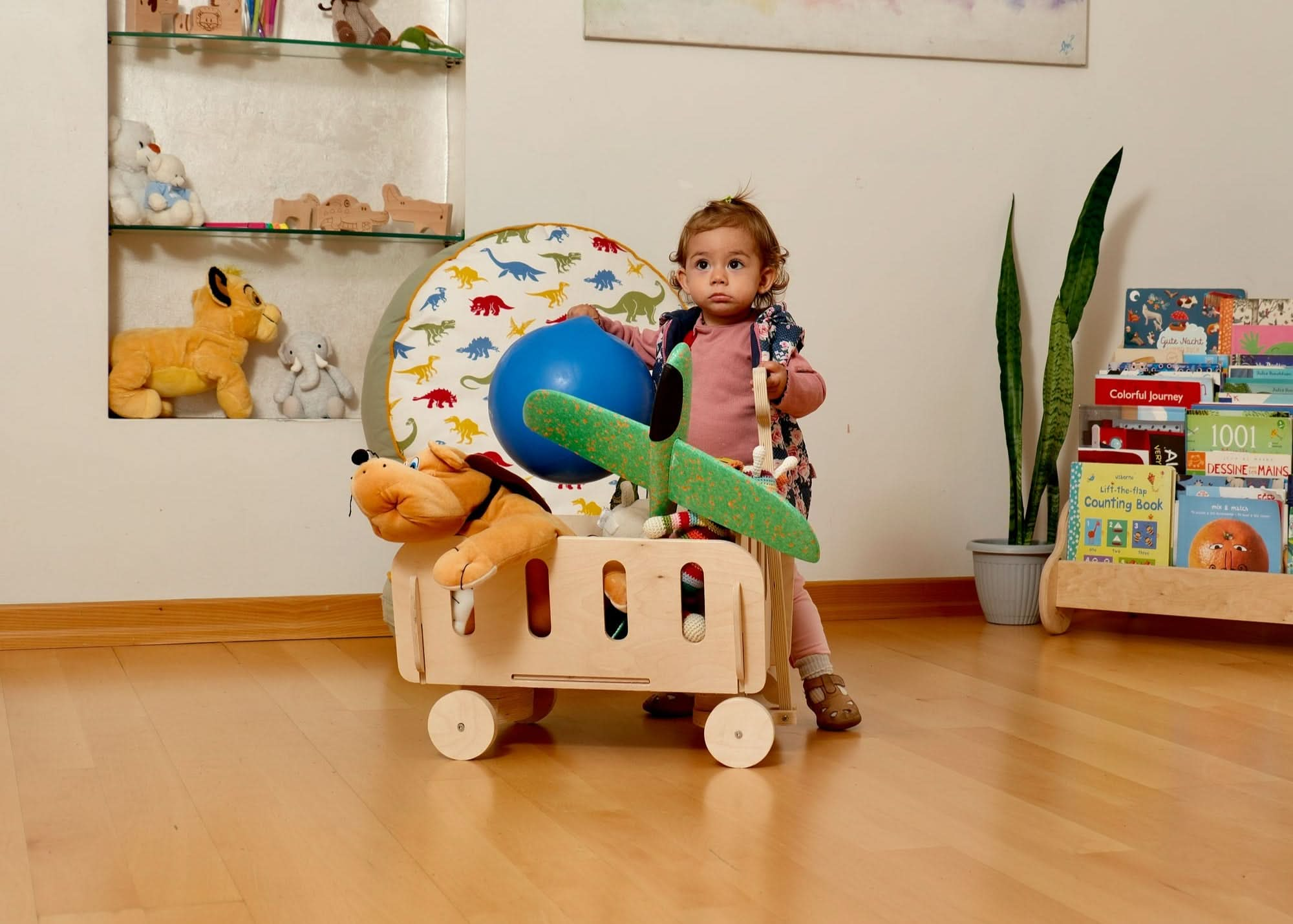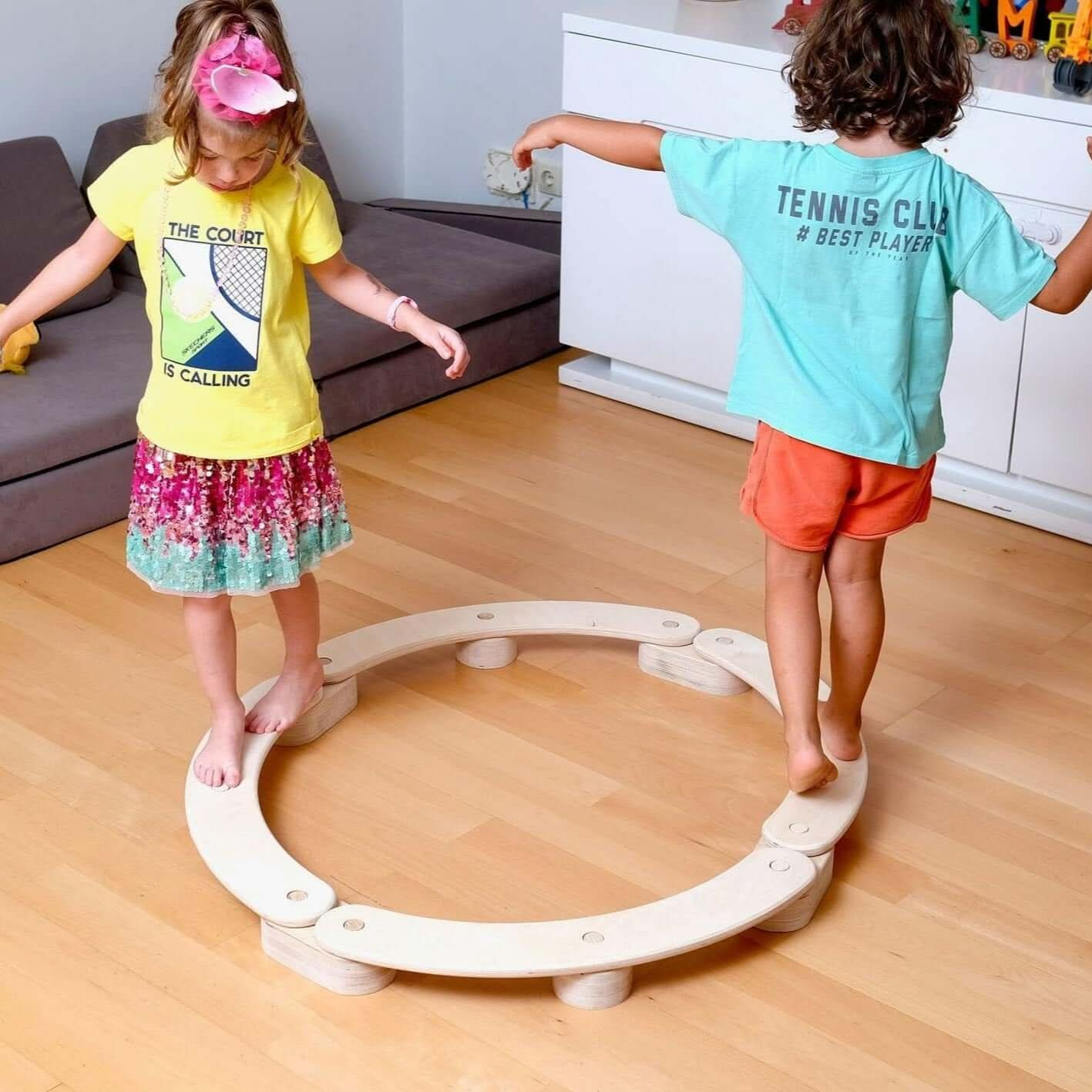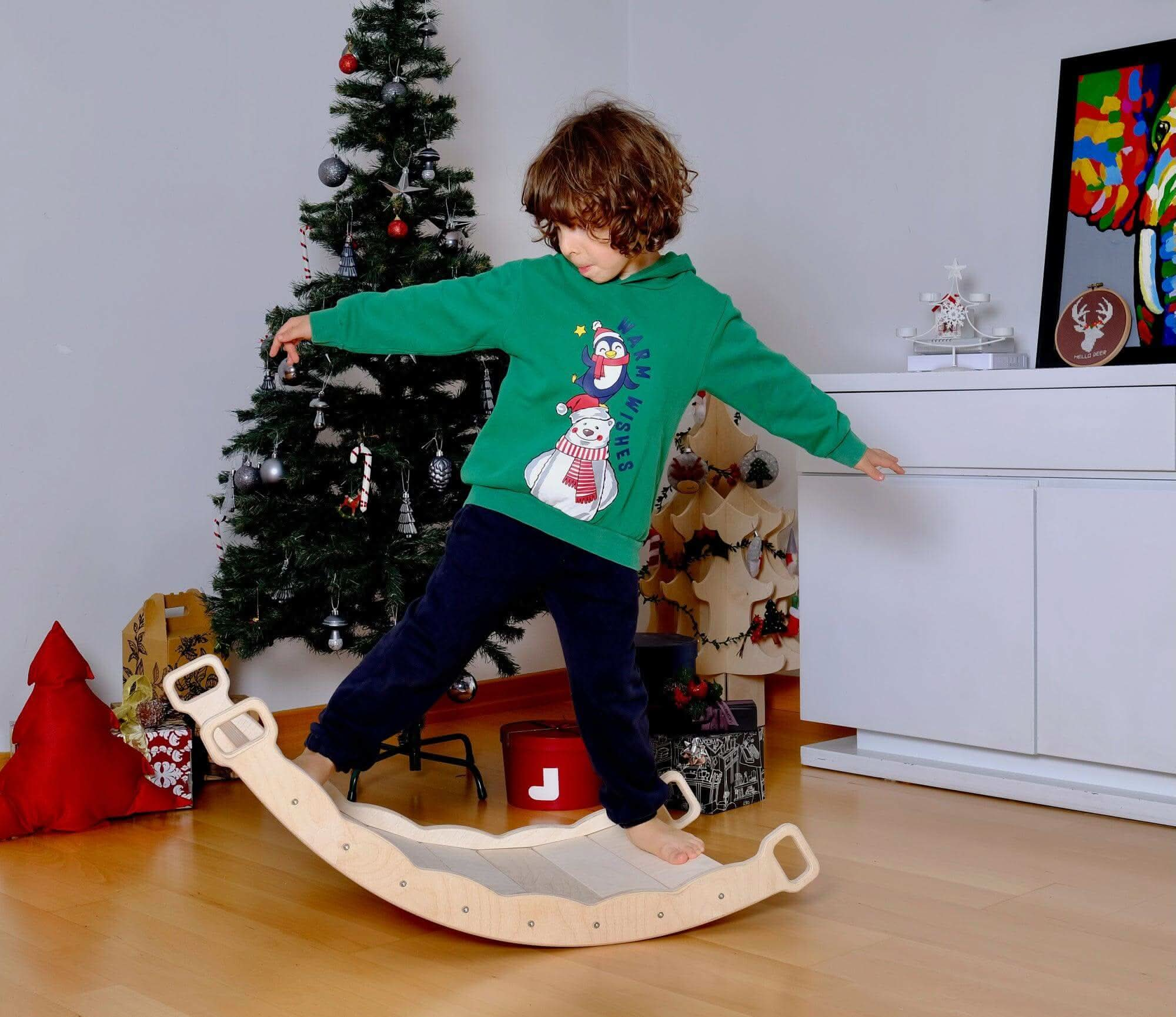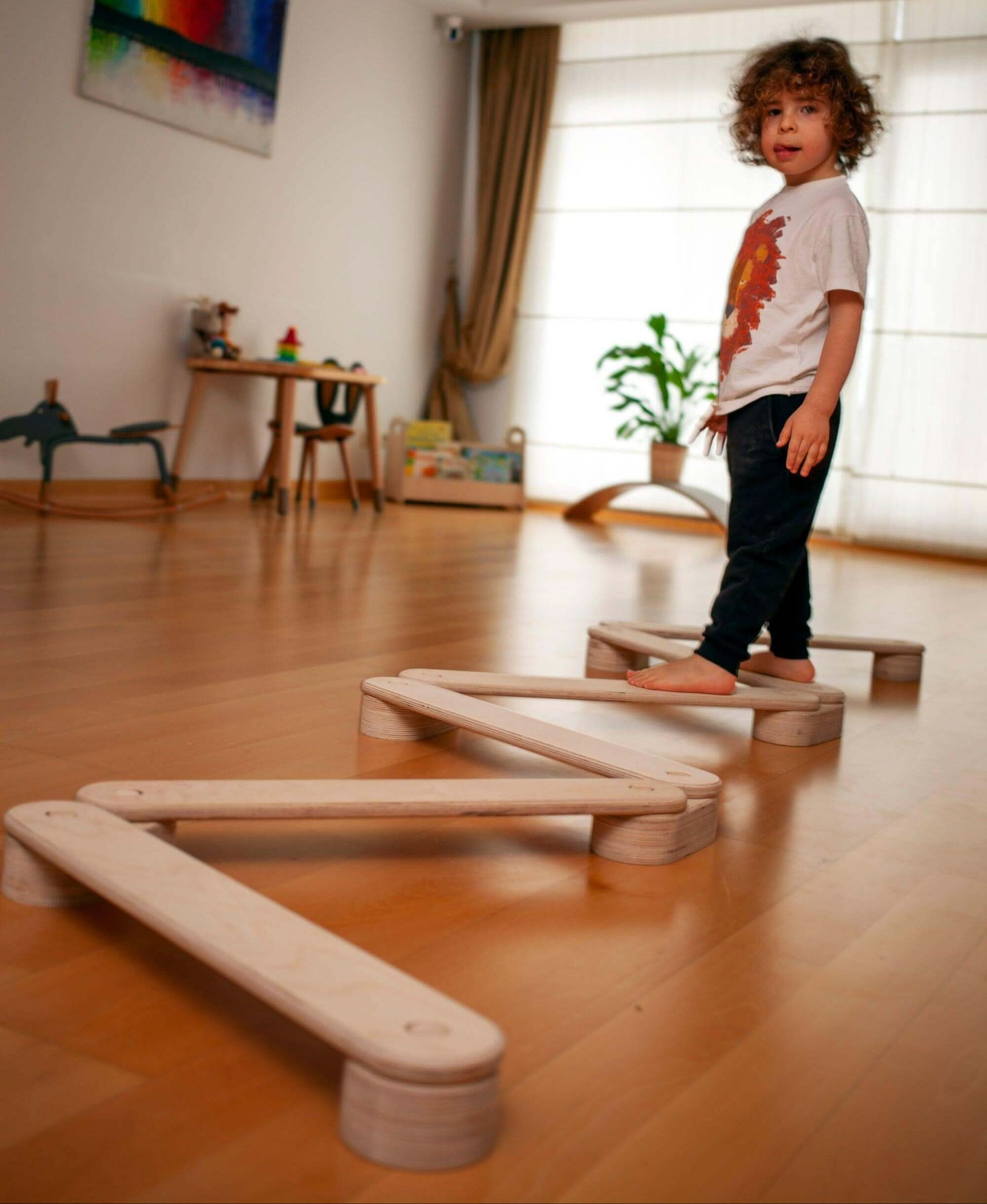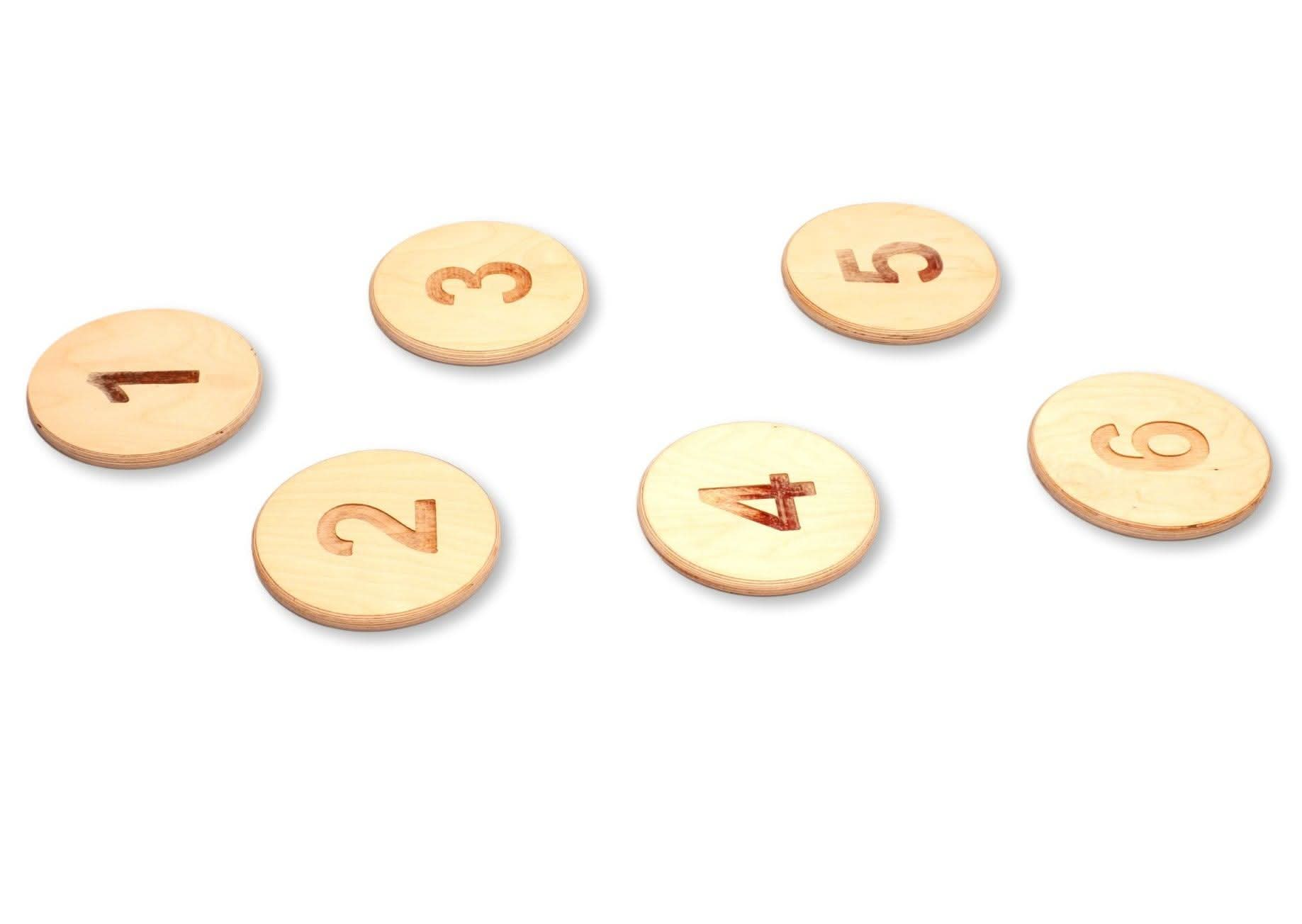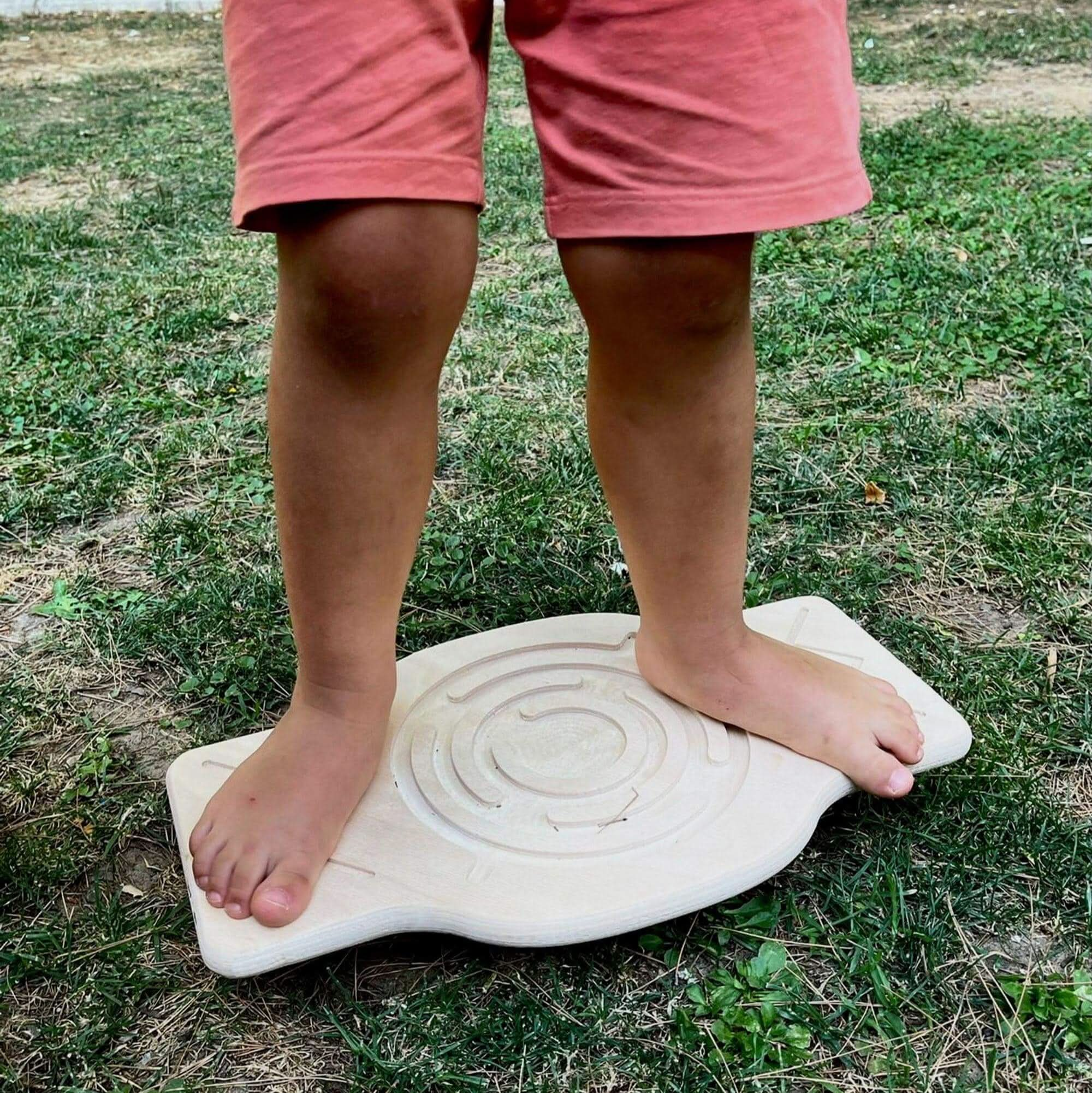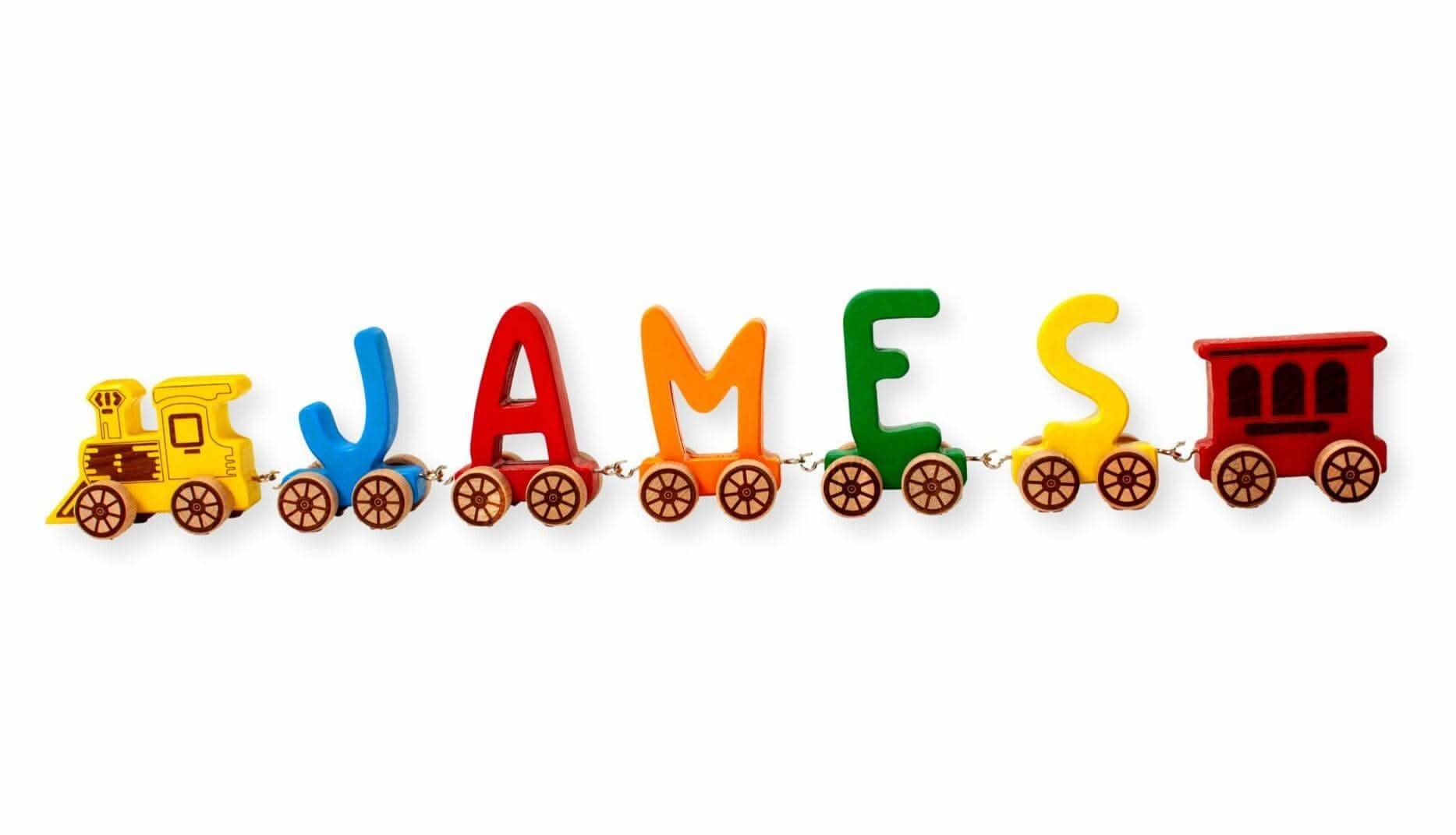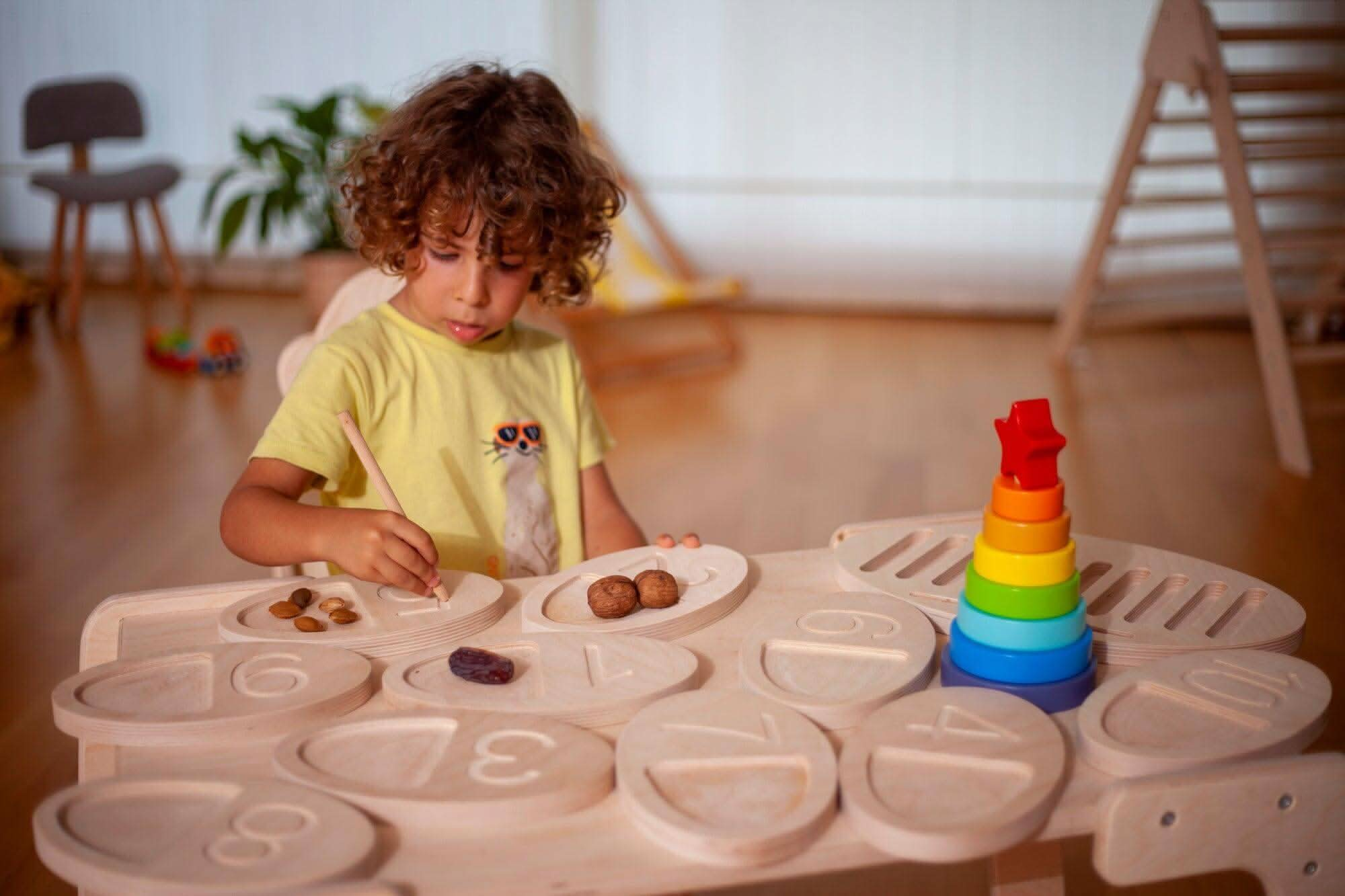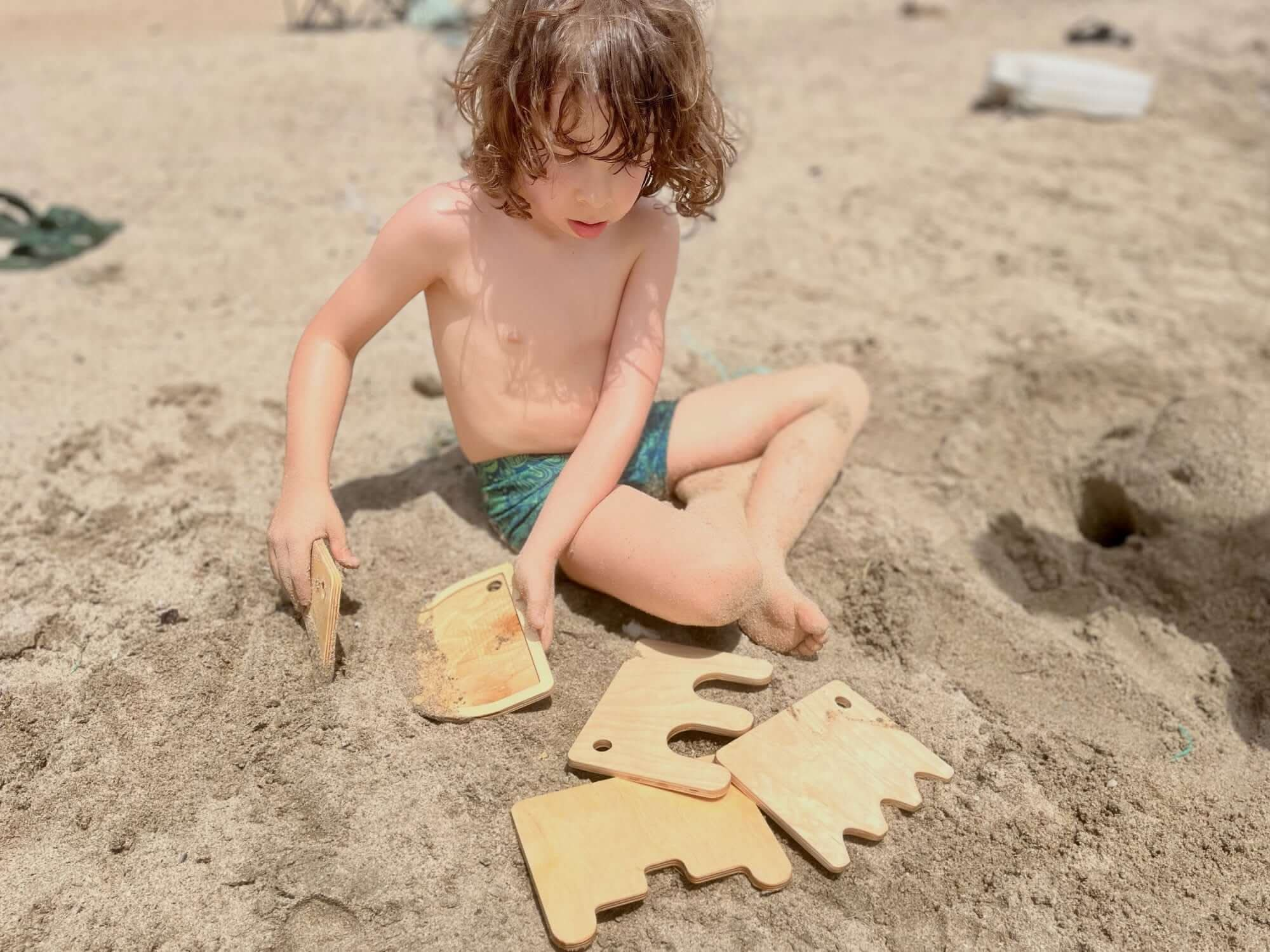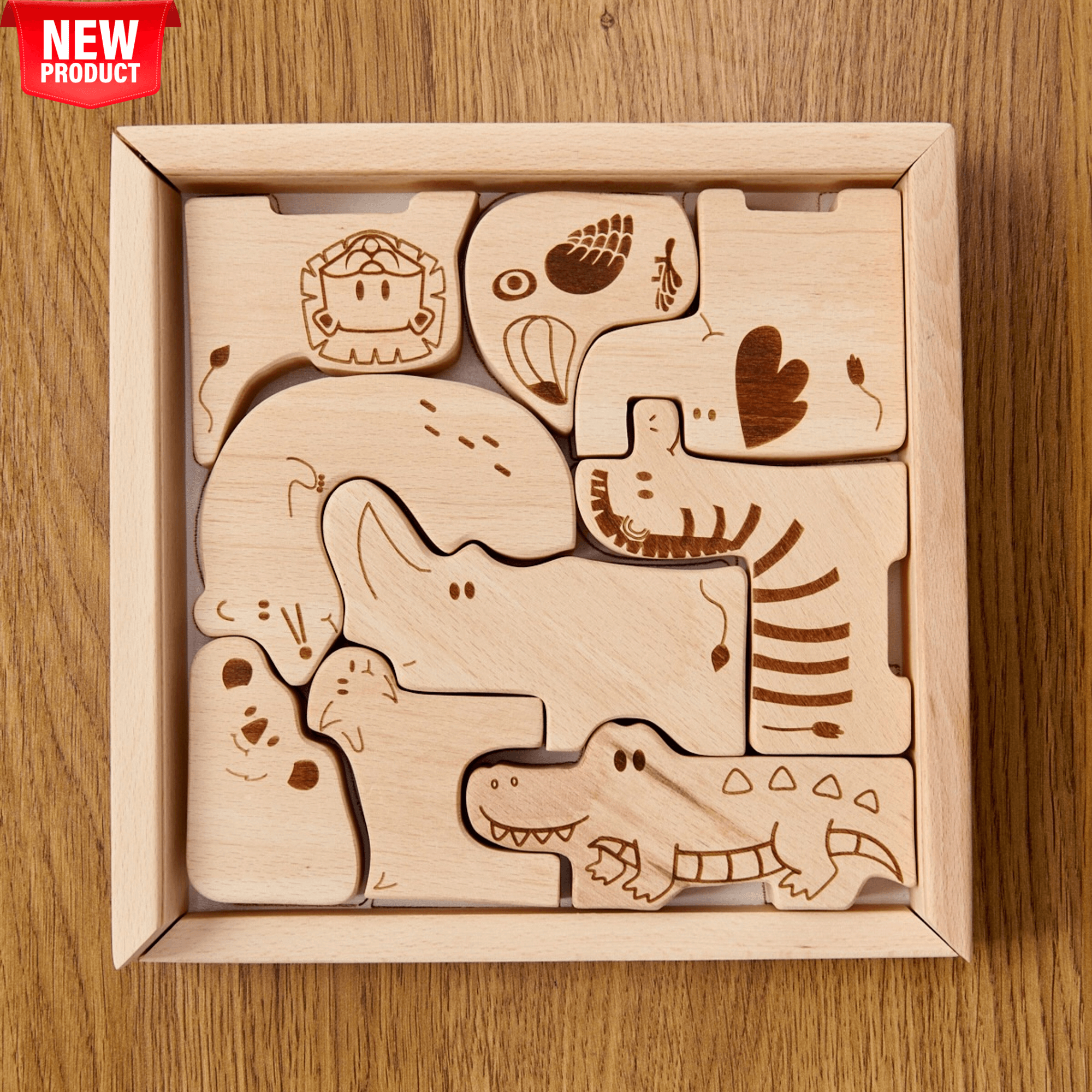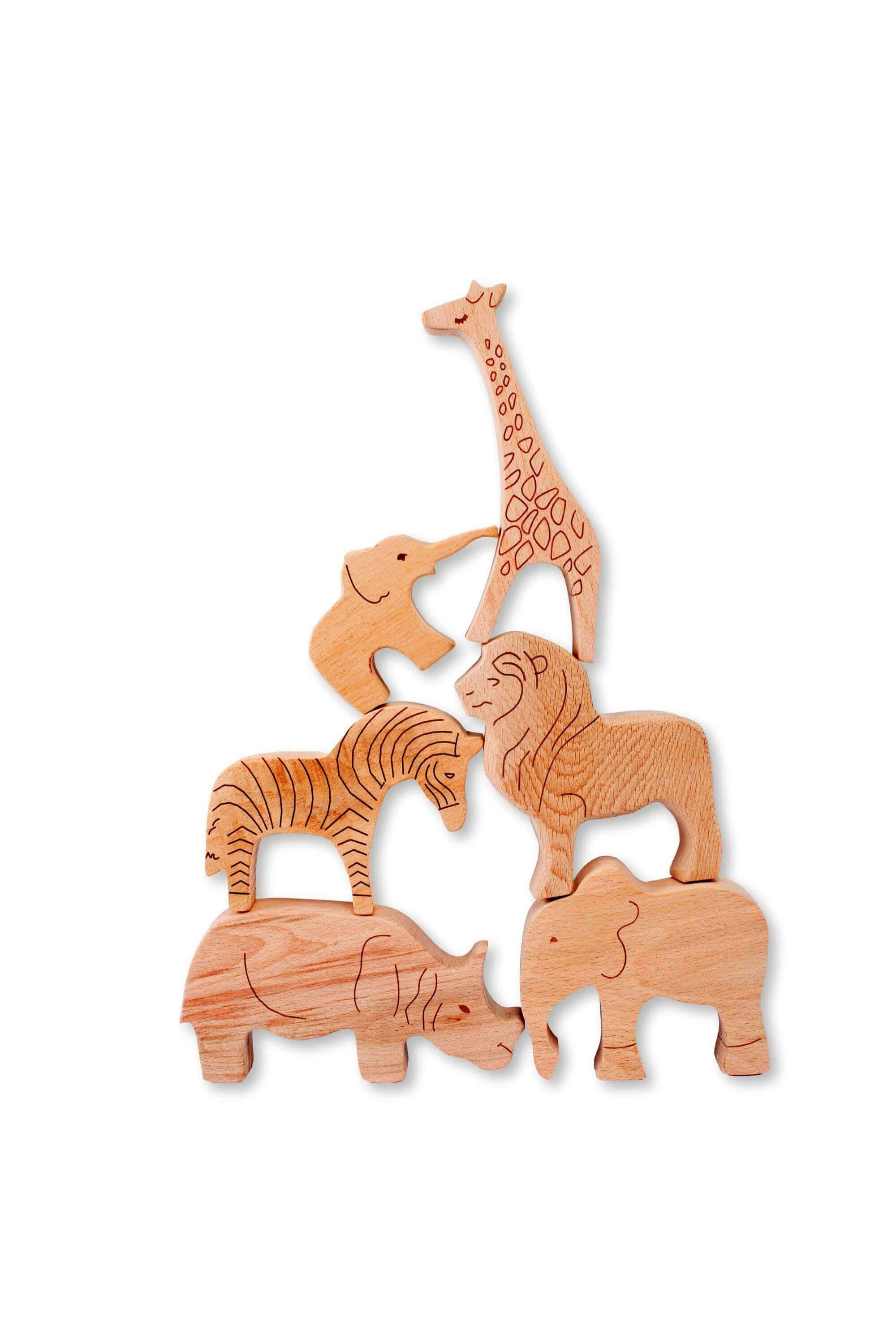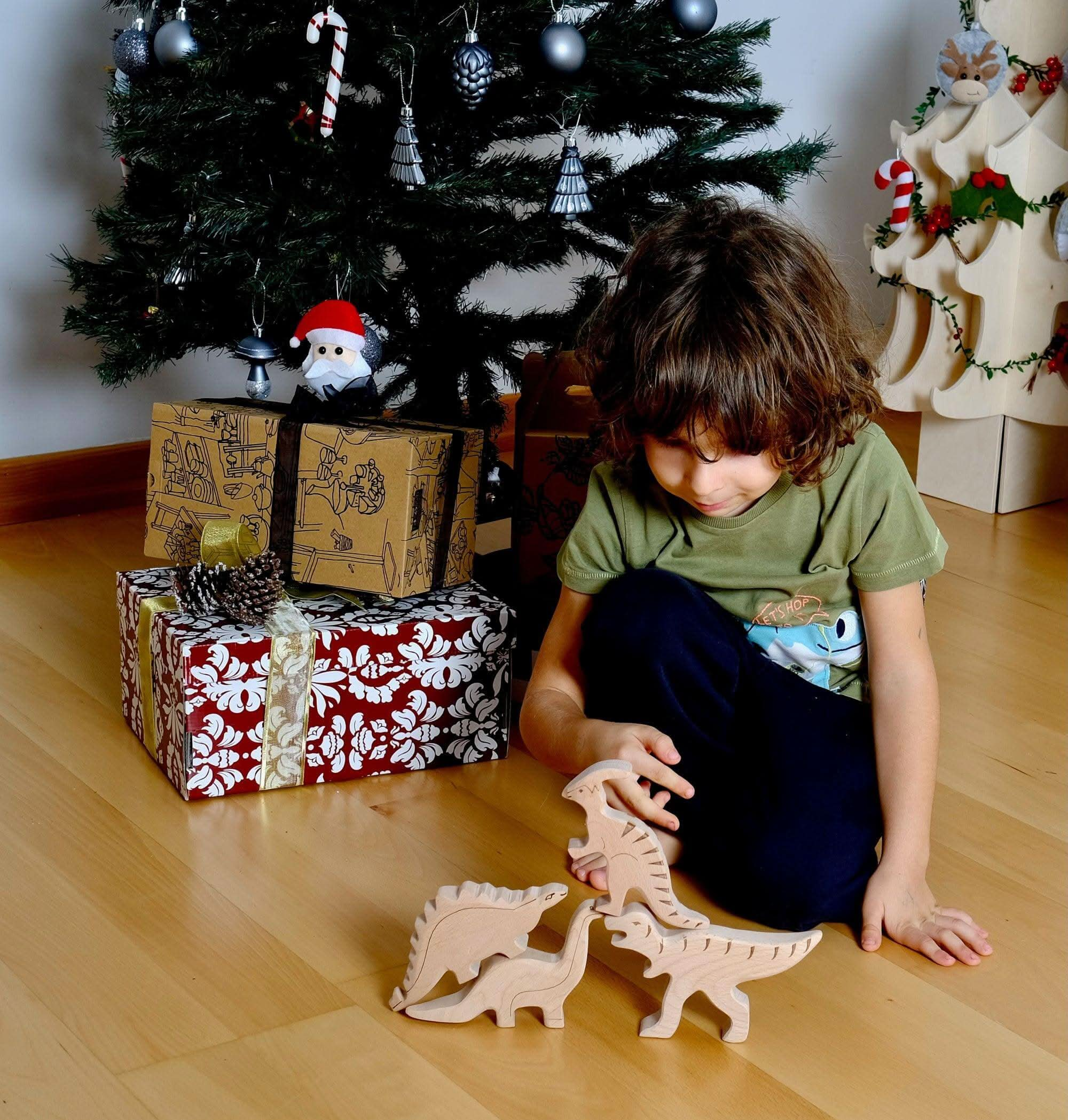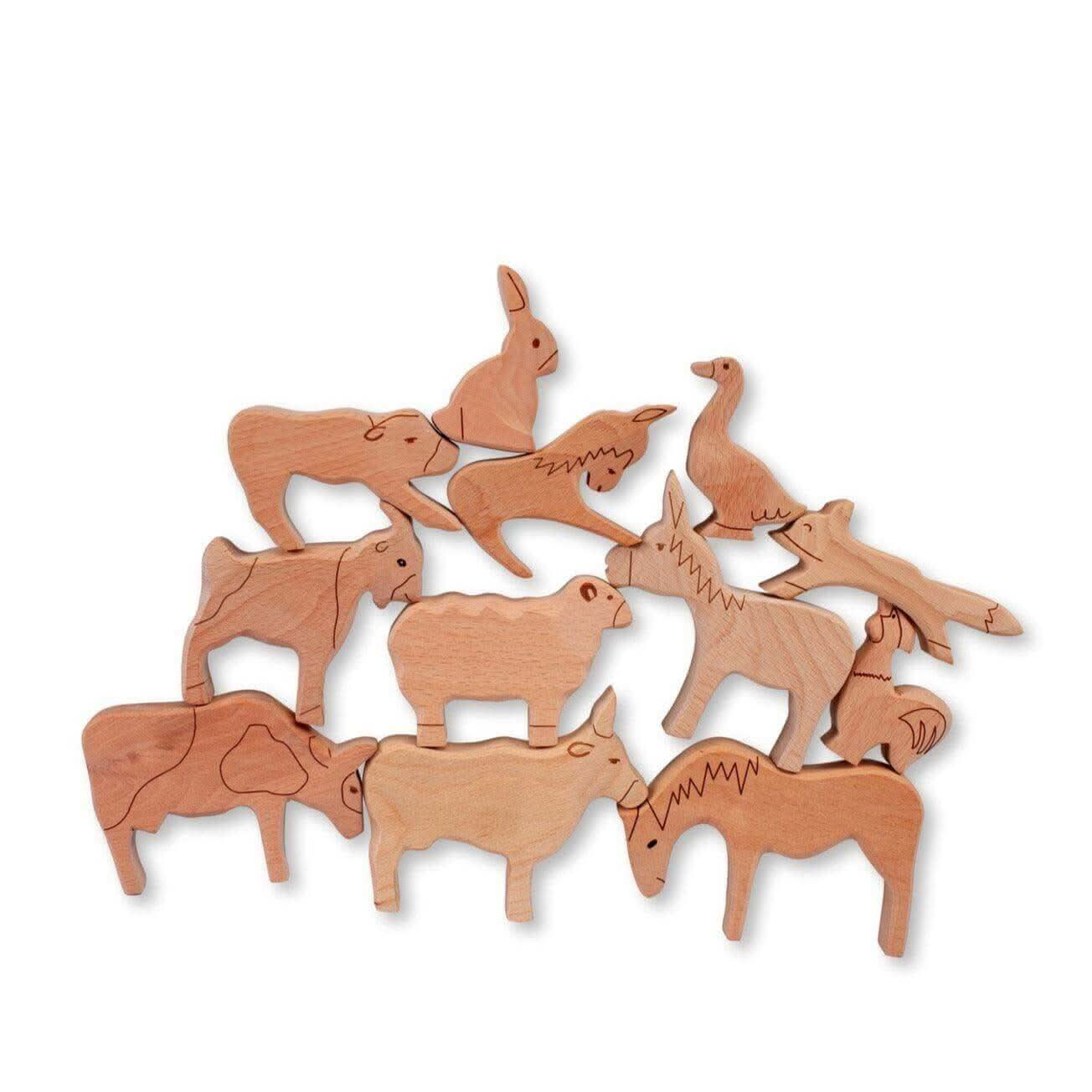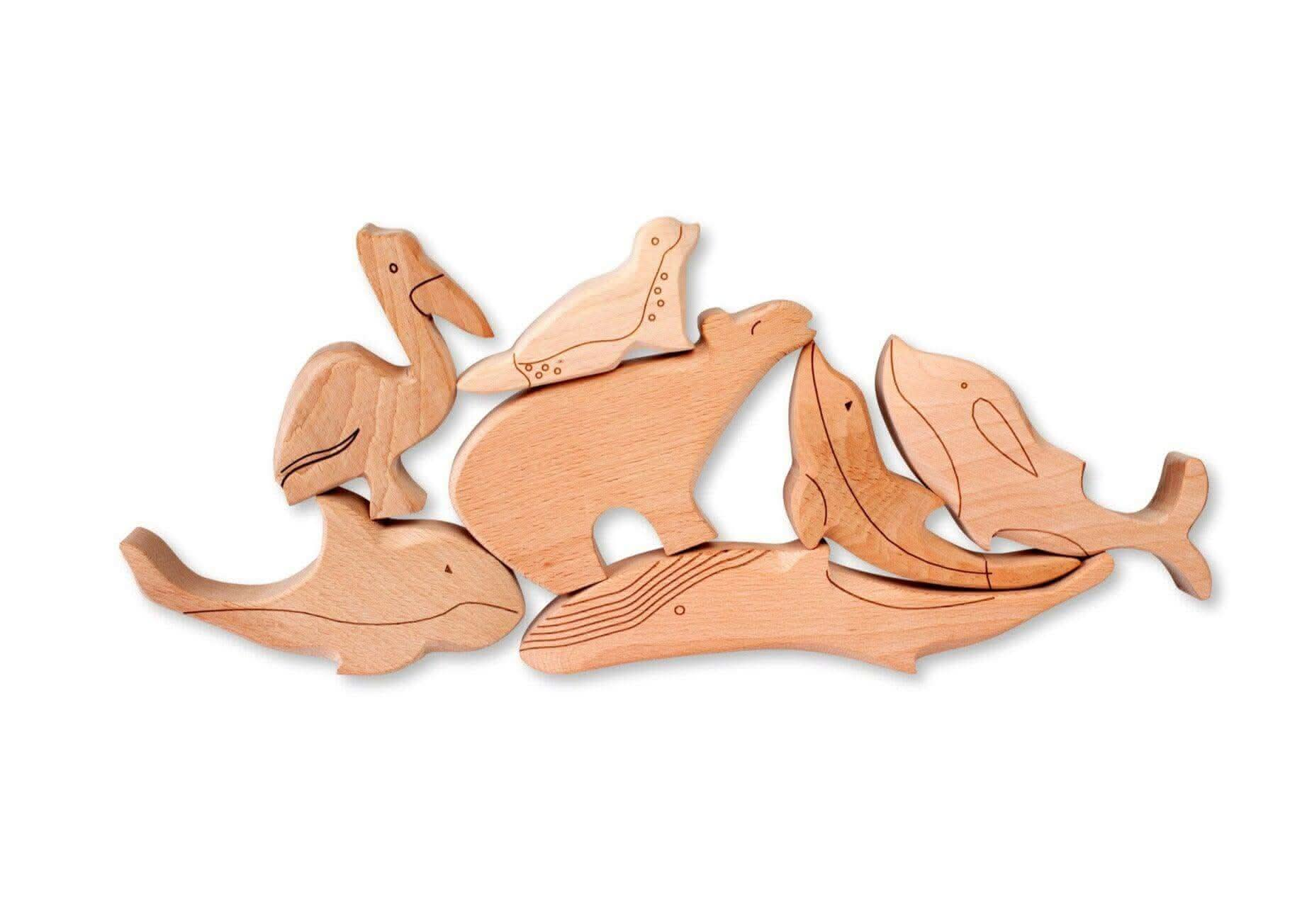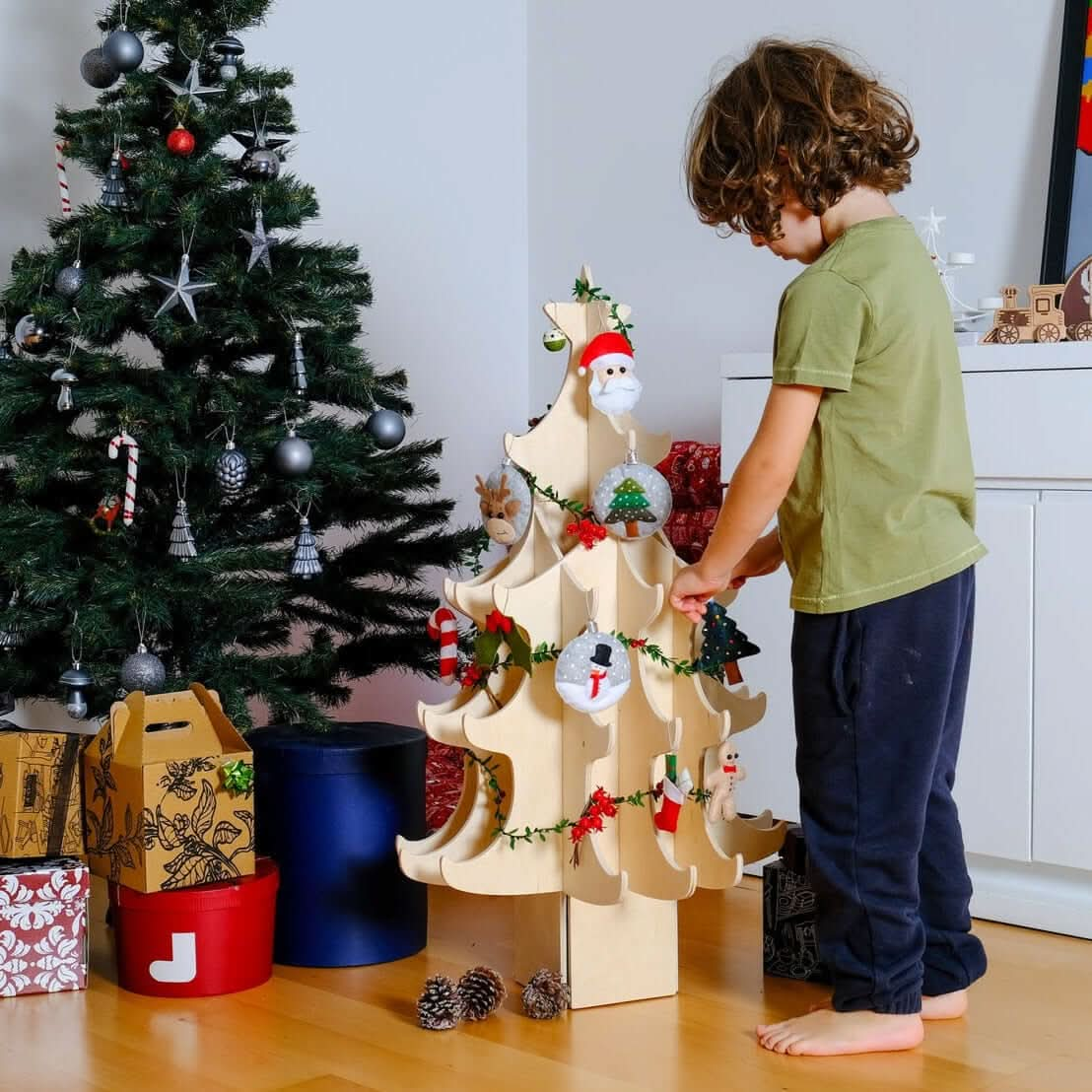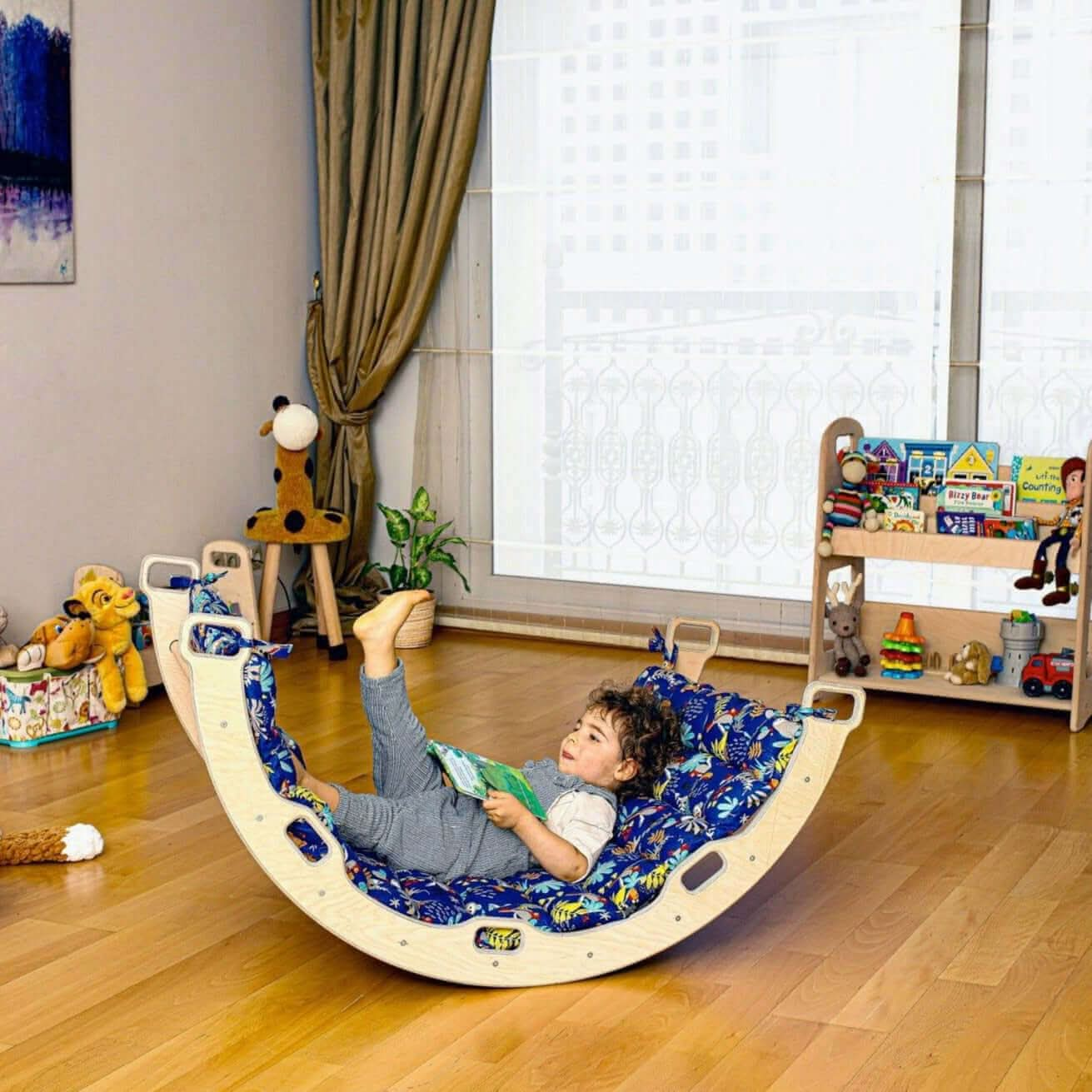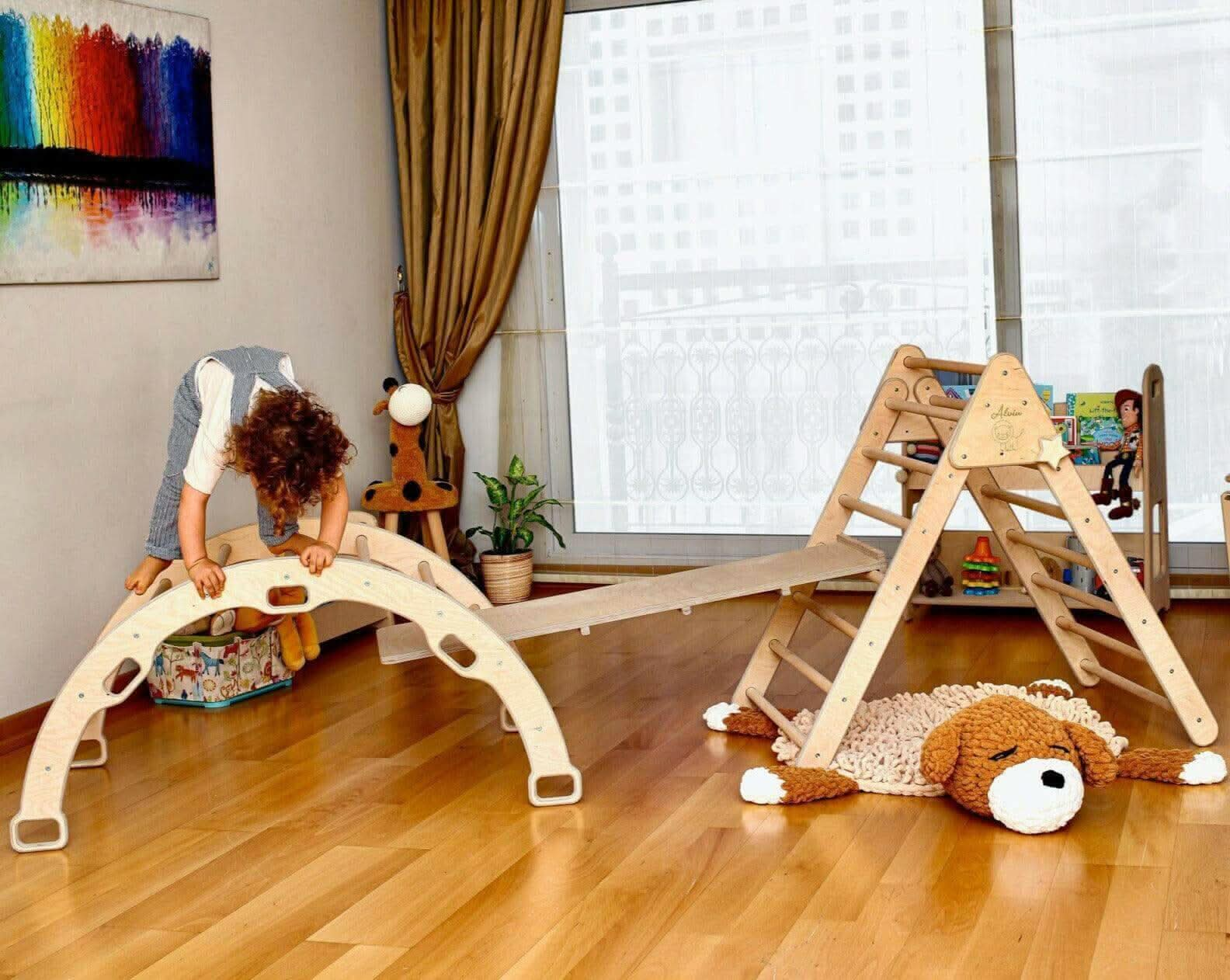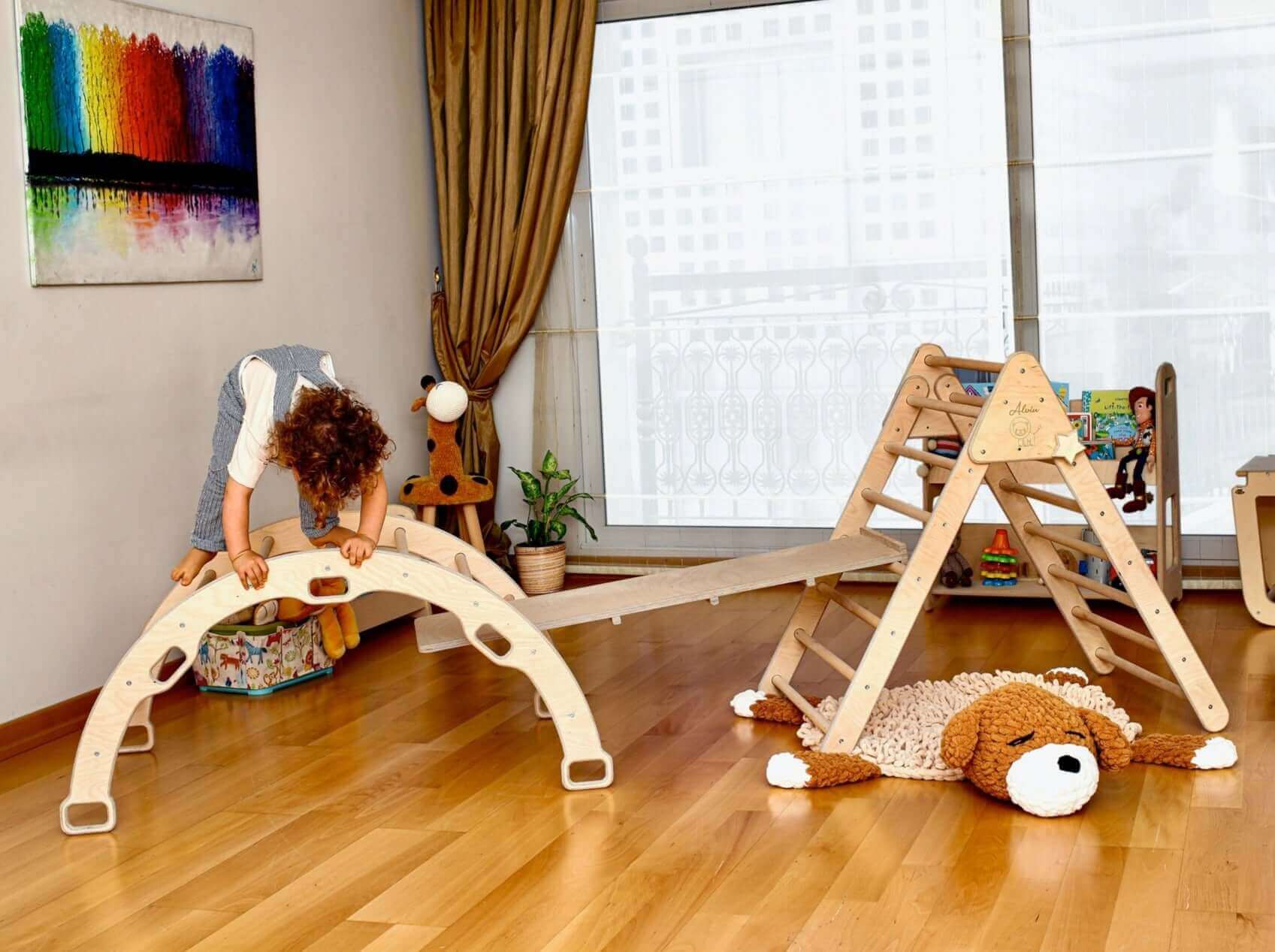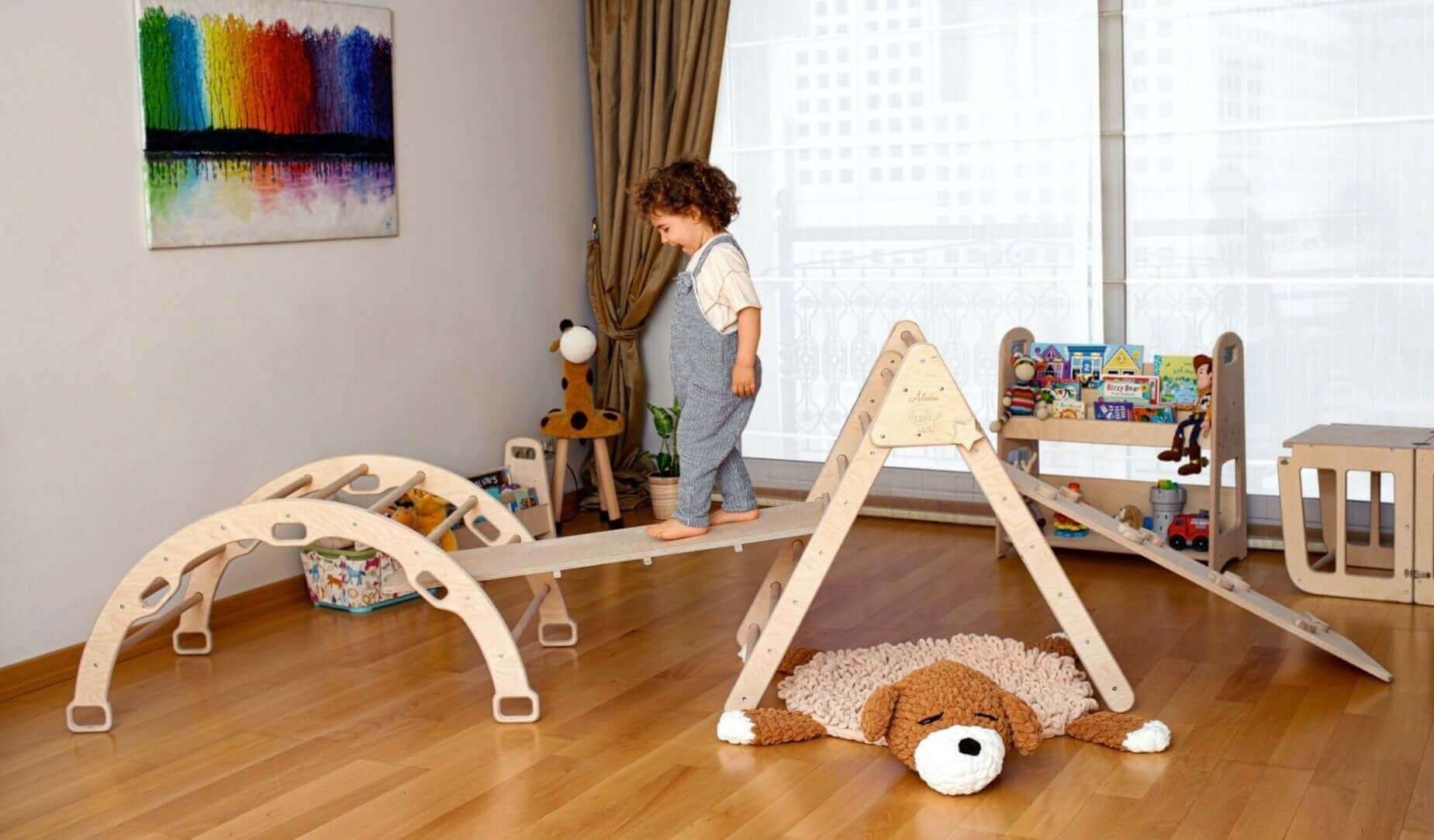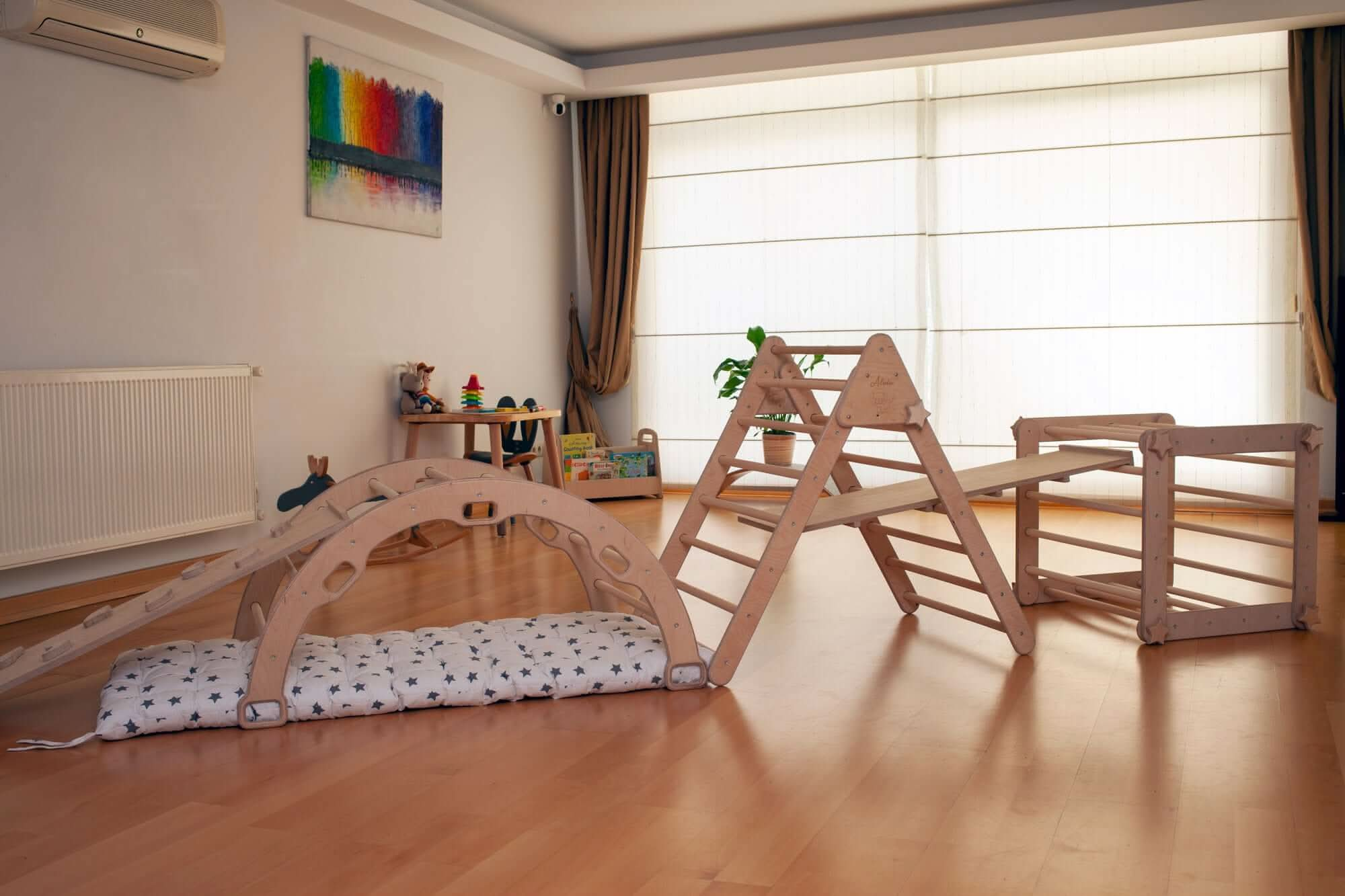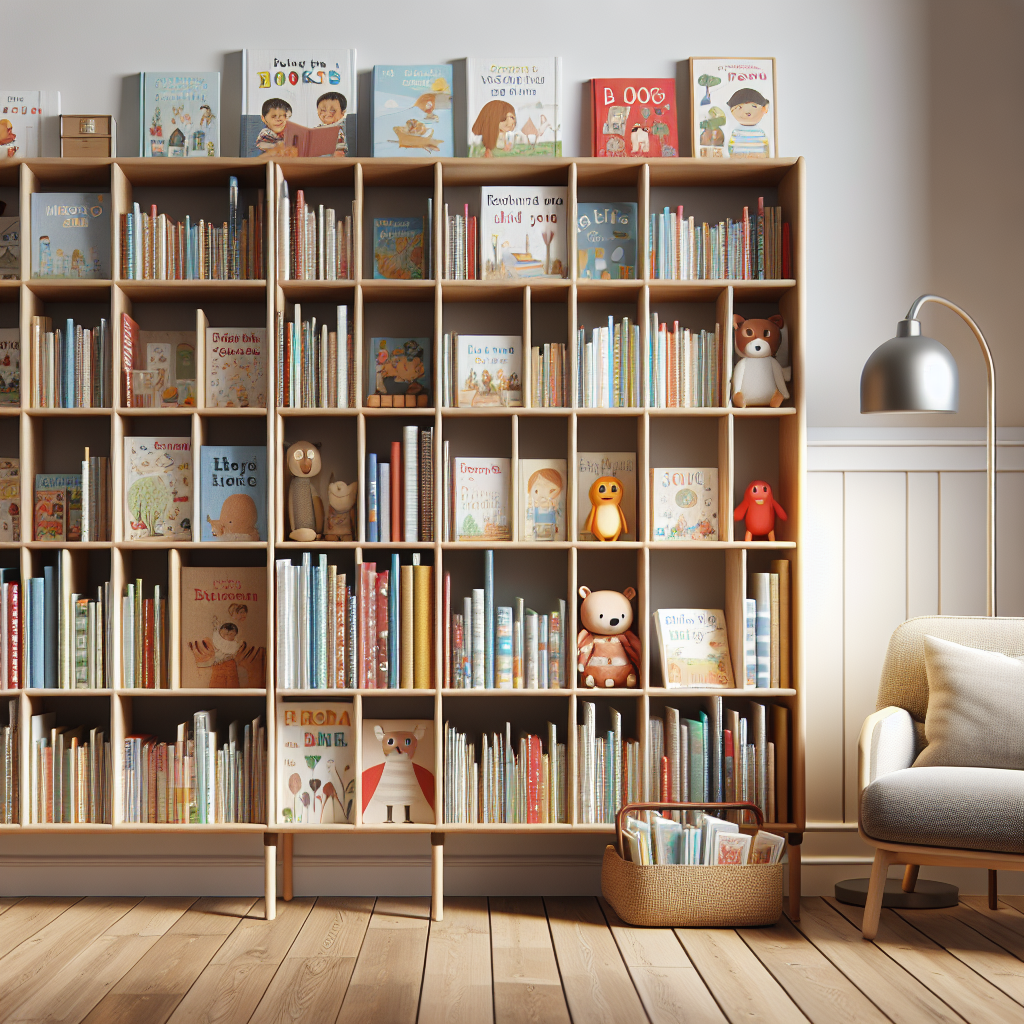
· Von halit burak capraz
Age-Appropriate Montessori Toys That Will Engage Your 3-Year-Old
Choosing the right toys for your 3-year-old can be a daunting task, especially when you want them to be both engaging and educational. Montessori toys offer an excellent solution, promoting hands-on learning and creativity. In this article, we'll explore age-appropriate Montessori toys that are perfect for three-year-olds, emphasizing their developmental benefits and how they foster essential skills.
The Montessori Philosophy: Why It Matters for Your Child's Development
In the world of childhood education and development, the Montessori method stands out as a beacon of innovation and child-centered learning. But what makes this approach so effective and why does it resonate so profoundly with parents searching for age-appropriate Montessori toys for 3-year-olds? Let's dive into the principles that underpin this philosophy and explore how they benefit your little one's growth.
Understanding the Core Principles
- Child-Centered Learning: At its heart, the Montessori method emphasizes independence. Unlike traditional teaching methods that are often adult-led, Montessori encourages self-directed activity. This empowers children to explore their interests at their own pace, fostering a love for learning from an early age.
- Hands-On Experience: The use of tactile and interactive educational tools, such as wooden educational toys or sensory toys for toddlers, is crucial. Maria Montessori believed that children learn best through doing, which is why hands-on learning toys for preschoolers are integral to the curriculum.
- Prepared Environment: A well-organized space designed to promote activity choice enables children to engage in developmental toys for toddlers effectively. Everything has its place, facilitating a child's ability to independently select and return materials.
The Benefits For Your Three-Year-Old
The application of these principles through carefully chosen educational toys for preschoolers offers numerous benefits:
- Cognitive Development: By engaging with learning toys for 3-year-olds that encourage problem-solving and critical thinking, children develop essential cognitive skills. For instance, open-ended play toys can stimulate creativity while aiding cognitive development.
- Fine Motor Skills: Toys that require precise hand movements, like Montessori puzzle games or fine motor skill toys for 3-year-olds, enhance dexterity and hand-eye coordination—both vital during early childhood education.
- Sensory Exploration: Sensory play is foundational in building nerve connections in the brain's pathways. It supports language development, cognitive growth, motor skills, problem-solving skills, and social interaction.
- Ecosystem Consciousness:** Equally important is instilling an appreciation for sustainability. Parents can choose eco-friendly toddler toys made from natural materials to align with Montessori values while teaching responsibility towards our planet's resources (check out [sustainable toy options](https://kidodido.com/blogs/news/top-5-sustainable-toy-options-every-parent-should-consider-for-their-3-year-olds) here).
If you're interested in exploring more about how these principles translate into tangible benefits via specific toy selections, explore our curated collection of [Montessori inspired toys](https://kidodido.com/collections/montessori-toys). The journey towards nurturing a well-rounded individual begins with thoughtful play!
Key Features of Age-Appropriate Montessori Toys for 3-Year-Olds
Choosing the right Montessori toys for 3-year-olds can feel as daunting as trying to find a specific Lego piece in a toddler’s toy box. However, knowing the key features to look for can make the process as smooth as your little one’s favorite bedtime story.
Simplicity and Purpose
The beauty of Montessori toys lies in their simplicity and purpose. Designed to minimize distractions, these toys encourage children to focus on one task at a time, fostering concentration and attention to detail. A classic example is the wooden stacking toy. With its straightforward design, it may appear simple, but it offers endless learning opportunities—from understanding size differentiation to enhancing fine motor skills.
Open-Ended Play
If you've ever seen a child turn a cardboard box into a spaceship, you'll appreciate the value of open-ended play toys. Age-appropriate Montessori toys often double as catalysts for imagination and creativity. This feature allows children to explore multiple uses and outcomes with a single toy, such as transforming wooden blocks into castles or cities.
Use of Natural Materials
The Montessori approach places great emphasis on using natural materials like wood, cotton, or metal. Not only are these materials eco-friendly and more durable compared to plastic alternatives, but they also provide varied sensory experiences. According to the American Academy of Pediatrics, tactile experiences are crucial for cognitive development during early childhood (Source: American Academy of Pediatrics).
Encouragement of Independence
One might say that Montessori toys are like training wheels for independence. They are designed with self-correction in mind, allowing children to learn through trial and error without constant adult intervention. Think of puzzles where pieces fit snugly only when correctly aligned—perfect examples of interactive educational tools that promote autonomous problem-solving.
- Simplicity: Encourages focus by reducing distraction.
- Open-ended play: Fosters creativity and imagination.
- Natural materials: Provides diverse sensory experiences while being eco-friendly.
- Promotes independence: Enables self-learning through trial and error.
The Role of Safety
No discussion about toddler toys would be complete without mentioning safety. Age-appropriate Montessori toys comply with stringent safety standards ensuring child-safe educational items that parents can confidently introduce into their homes.
Investing in these thoughtfully designed playthings not only supports your child's developmental journey but also aligns with sustainable parenting practices. Want more insights on sustainable toy options? Check out our detailed guide on the [top sustainable toy options every parent should consider](https://kidodido.com/blogs/news/top-5-sustainable-toy-options-every-parent-should-consider-for-their-3-year-olds).
Top Recommendations: Best Montessori Toys for Three-Year-Olds
Choosing the right Montessori toys for 3 year olds can sometimes feel like solving a puzzle without corner pieces. Fear not, weary parent or guardian! We’ve compiled a list of the most engaging and educational toys that not only adhere to Montessori principles but also captivate the curious minds of three-year-olds. These selections are perfect for enhancing cognitive development while ensuring that playtime isn't just fun, but also a foundational learning experience.
1. The Classic Wooden Building Blocks Set
- Description: A timeless favorite, wooden building blocks continue to be a staple in Montessori learning environments. These blocks encourage creative and open-ended play, allowing children to build diverse structures while developing their fine motor skills.
-
Benefits:
- Promotes spatial awareness and problem-solving skills.
- Encourages imaginative play and cooperative interaction when shared with friends.
Fun Fact: Did you know that during the early 1900s, Maria Montessori herself advocated for the use of simple, natural materials like wood in educational tools?
2. Montessori Screwdriver Board
- Description: This intriguing tool allows children to practice using screwdrivers in a safe environment. Comprising various screws and bolts, it fosters hand-eye coordination and concentration.
-
Benefits:
- Enhances fine motor skills and dexterity.
- Sparks curiosity about how things work mechanically.
This board is an ideal choice for little ones who love tinkering—think of it as an engineering playground, minus any actual risk!
3. Colorful Sorting and Stacking Toys
- Description: These vibrant sets allow toddlers to group items by color or shape, fostering both cognitive development and creativity.
-
Benefits:
- Aids in color recognition and sorting abilities.
- Supports logical thinking through categorization tasks.
An additional bonus: these toys are often made from eco-friendly materials, aligning with an increasing trend towards sustainable toy options (check out our top picks here!)!
4. Montessori Puzzle Games
- Description: Featuring varied shapes and patterns, these puzzles challenge three-year-olds to fit pieces together correctly—a great way to develop critical thinking skills.
-
Benefits:
- >Aligns with early childhood educational goals by promoting problem-solving.
The Benefits of Choosing Montessori-Inspired Toys
Choosing Montessori-inspired toys for your 3-year-old is like gifting them a ticket to a world of curiosity, creativity, and cognitive development. Rooted in the educational philosophy of Dr. Maria Montessori, these toys are designed to complement a child's natural learning process, encouraging self-directed exploration and hands-on engagement. Let's dive into the wealth of benefits these toys offer:
1. Fosters Independence and Confidence
Montessori toys are crafted to be intuitive, empowering children to explore independently. For instance, simple tools such as wooden stacking rings or a shape sorter might seem like ordinary playthings, but they are powerful tools for building problem-solving skills and nurturing a sense of accomplishment. As your child figures out how to stack rings or match shapes, they're not just playing; they're developing critical thinking skills and gaining confidence in their abilities.
2. Enhances Fine Motor Skills
The fine motor skill toys for 3-year-olds help develop dexterity and hand-eye coordination, which are foundational for writing, drawing, and eventually tying shoelaces without any parental sighs of exasperation! According to a study by the Boston Children’s Hospital, activities that involve grasping small objects strengthen muscles in the hands and fingers—an essential milestone at this stage.
3. Encourages Cognitive Development
If you've ever marveled at how quickly toddlers pick up new words or concepts, you'll understand the power of cognitive development during early childhood. Montessori learning materials often incorporate real-world scenarios that help children make connections between their playtime activities and everyday life. For example, pretend grocery shopping sets can teach basic math skills like counting and categorizing while also introducing concepts of healthy eating.
4. Supports Sensory Exploration
The tactile nature of sensory toys for toddlers offers an unparalleled opportunity for sensory exploration. Engaging preschool toys such as textured puzzles or natural material kids' toys made from eco-friendly materials invite children to touch, feel, and sometimes even taste (let's face it—they will try). This multisensory approach not only supports sensory integration but also enhances memory retention.
5. Promotes Open-Ended Play
The beauty of Montessori-inspired toys lies in their open-ended design; there's no right or wrong way to play with them! This freedom encourages imaginative play sets for toddlers where creativity reigns supreme—where wooden blocks become castles or cars with equal ease. According to child development experts at NAEYC (National Association for the Education of Young Children), open-ended play is crucial for developing social-emotional skills as children learn to express themselves through creative storytelling.
By choosing Montessori-inspired options from our thoughtfully curated collection at Kidodido LLC, you're not just buying toys; you're investing in tools that nurture growth across multiple dimensions—physical, emotional, cognitive—and beyond!
Conclusion: Making the Most of Your Child's Early Learning Years
As you embark on this exciting journey into the world of age-appropriate Montessori toys for 3-year-olds, remember that play is a child's most potent way to learn. These formative years are crucial for shaping cognitive skills, sparking creativity, and nurturing a love for discovery. By choosing the right educational tools, you're not just buying toys; you're investing in your child's future.
Research suggests that children who engage with Montessori-inspired educational toys often exhibit higher levels of focus and independence in their later years (source: American Montessori Society). But don't just take our word for it—watch your child thrive as they engage with these carefully crafted playthings.
- Encourage Curiosity: Open-ended play toys and imaginative play sets offer endless possibilities, allowing your toddler to explore new concepts at their own pace.
- Nurture Skills: From fine motor skill toys to interactive educational tools, these items help build foundational skills critical for school readiness.
- Sustainable Choices: Opting for eco-friendly toddler toys made from natural materials not only supports the environment but also promotes safe, toxin-free play.
Laughter is often said to be the best medicine; however, in the world of toddlers, perhaps "play" holds the cure-all title. After all, who knew that those seemingly endless rounds of "peek-a-boo" were actually honing your child's social interaction skills? Talk about getting more bang for your developmental buck!
If you're pondering on sustainable choices and looking for long-lasting options, check out our blog post on Top 5 Sustainable Toy Options Every Parent Should Consider. It offers insights into making mindful decisions when selecting educational products that will stand the test of time while embracing eco-conscious living.
Ultimately, cherishing these early learning years involves combining love with understanding and patience. By providing access to well-chosen learning resources and engaging preschool toys, you are setting a strong foundation for lifelong curiosity and growth. Here's to many joyful learning adventures ahead!

